
CHEF CORNER
CHEF EMMANUEL
FEATURE
ALUDA RE\VOLVER
RESTAURANT
FEATURE
COCO DUBAI



CHEF CORNER
CHEF EMMANUEL
FEATURE
ALUDA RE\VOLVER
RESTAURANT
FEATURE
COCO DUBAI

















A review of the Africa Food & Drinks Festival, where the continent’s finest chefs showcased not only their culinary excellence but also the rich stories and heritage woven into every flavor.

Fire, Faith and Flavour: How Chef
Emmanuel Aluda Built a Culinary Legacy
How Re\Volver is Rewriting Nairobi's Cocktail Culture 48 COCO DUBAI
How Naz Choudhury is redefining Dubai’s Dining and nightlife scene 40 CHEF EMMANUEL ALUDA
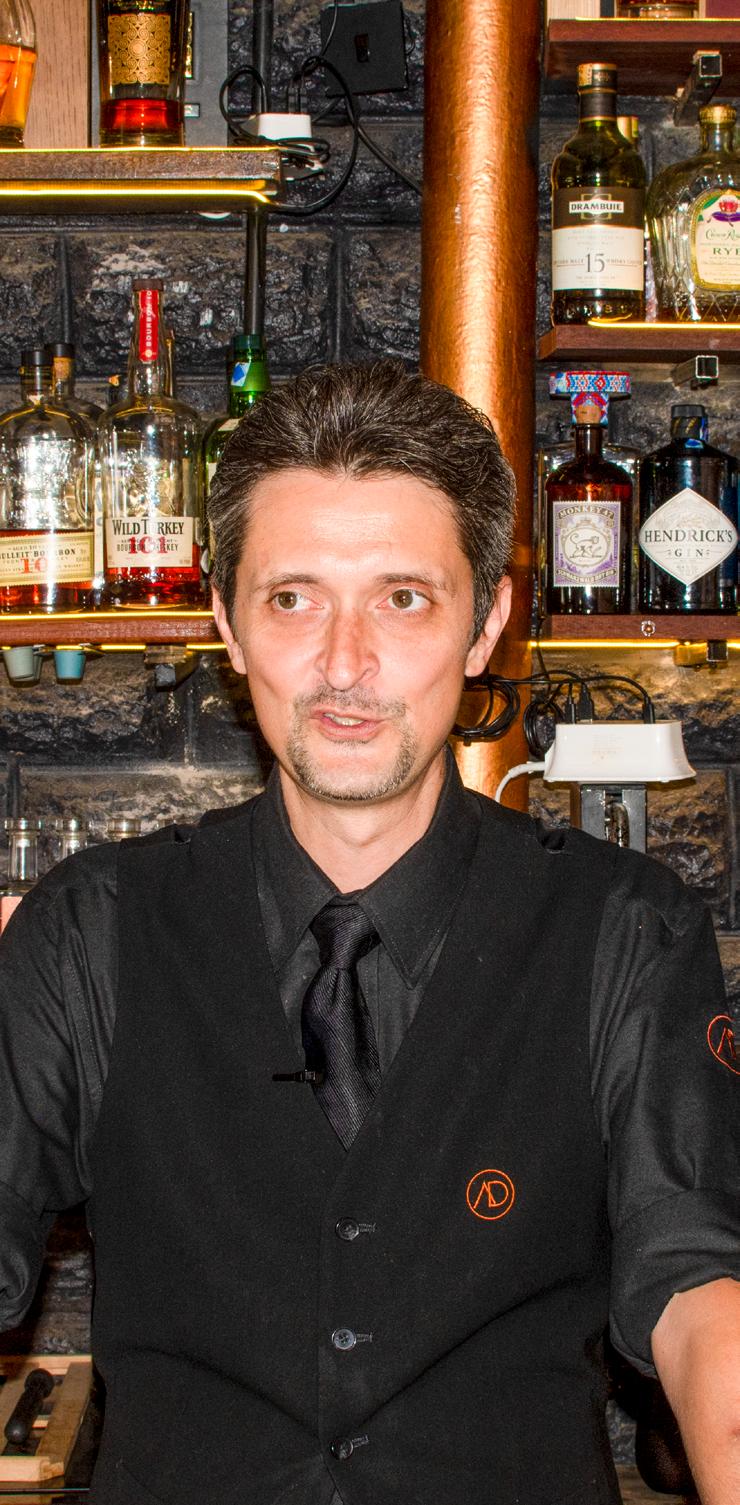

SAFARI LODGES
Sustainability Practices in Safari Lodges in Sub-Saharan Africa: Harmonizing Conservation with Business Success
EGYPT
Egypt’s tourism renaissance: A story of timeless allure and bold renewal



www.foodbusinessmea.com
www.horecamea.com
www.feedbusinessmea.com

www.healthcaremea.com
www.dairybusinessmea.com

AFRICA Expo HOTELS RESTAURANTS &


Co-located With:
No.1 Trade Shows for Food Service, Hospitality & Travel Industry in Africa


MARCH 25-27, 2026 | Lusaka, Zambia
JUNE 2-4, 2026 | Lagos, Nigeria
JULY 15-17, 2026 | Nairobi, Kenya




HORECA Equipment, Accessories & Solutions

HORECA Technologies, Systems & Services

HORECA Furniture, Decor, Style & Supplies



Specialty Coffee & Tea




Specialty Wines & Spirits

Laundry Equipment & Supplies; Cleaning, Hygiene & Sanitation Products


Fresh & Packaged Foods & Beverages

Bakery, Food & Beverage Ingredients & Commodities
HORECA Design, Engineering & Construction
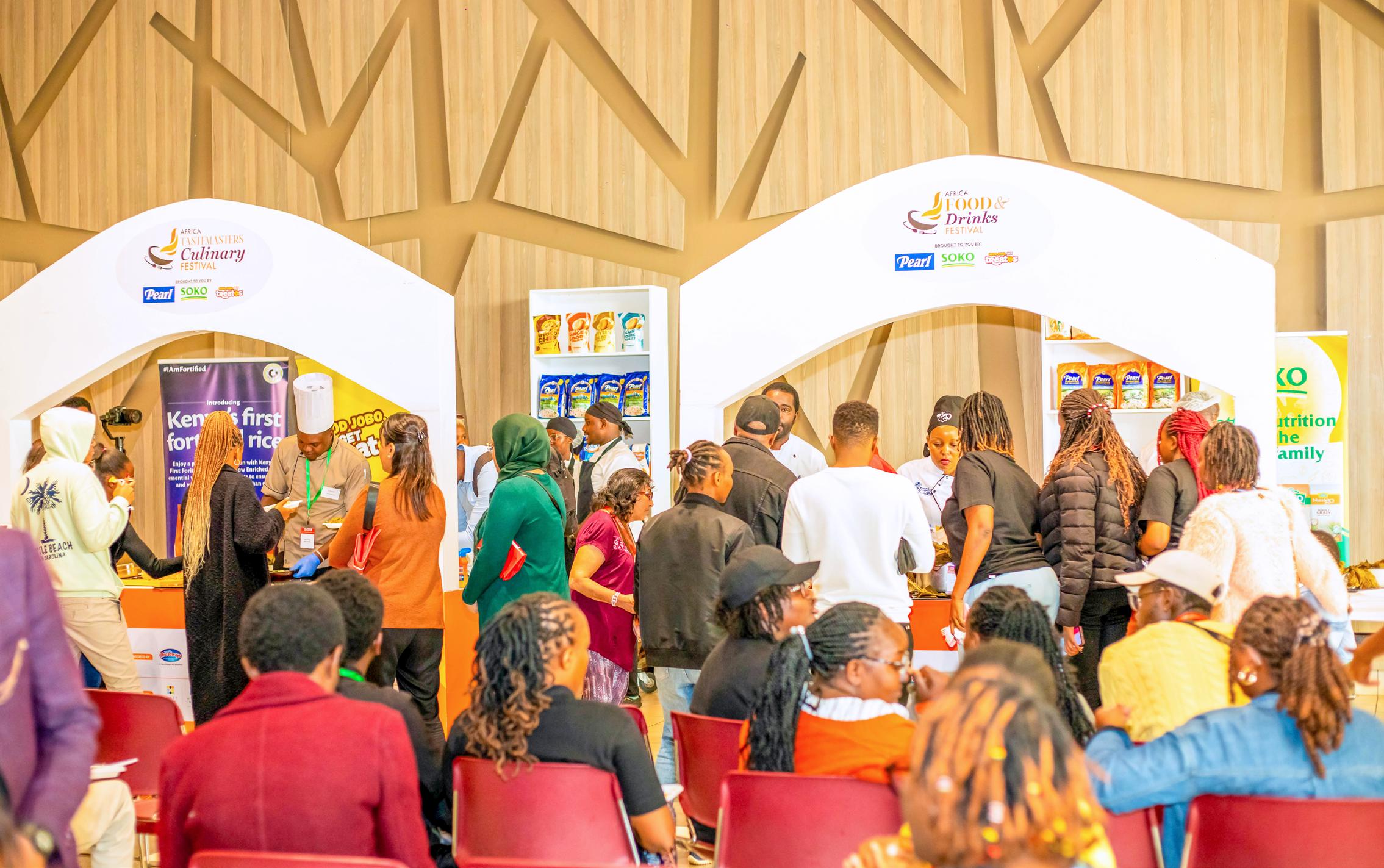
One of the things I love most about hospitality is its heartbeat, the events, the festivals, the moments where people come together to share not just food and drink, but ideas, culture, and creativity. In a way, these gatherings are what remind us why we work in this industry: to create connections that last far beyond a hotel stay or a meal.
The Africa Hotels & Restaurants Expo is a perfect example of this. It’s not just an exhibition, it’s a meeting ground where hoteliers, restaurateurs, and suppliers come face to face, building partnerships and exchanging knowledge that shapes the future of our sector. Walking through such an expo, you can feel the energy of an industry eager to grow and innovate. It’s proof that Africa’s hospitality story is bold, dynamic, and ready to take its place on the global stage.
Then there’s the joy of festivals like Africa Food & Drinks Festival, where food takes the spotlight. Watching chefs push creative boundaries, discovering new ingredients, and seeing how a dish can tell the story of a place, it’s inspiring. Festivals like these remind us that food is more than sustenance; it’s identity, memory, and art. They also give young chefs and established names alike the chance to shine, while giving audiences an unforgettable taste of what hospitality can be at its best.
With that same spirit of celebration, I am thrilled to introduce Issue 2 of HORECA Middle East & Africa magazine. This edition is packed with stories that capture the creativity, resilience, and innovation driving our industry.
Our hotel feature takes you inside Park Inn by Radisson, a brand making a big impact with its blend of comfort and style. We also get up close with Chef Emmanuel of Park Inn in our chef’s corner, where his passion for craft and flair for Africaninspired cuisine shine through.
In our country focus, we explore Egypt, a land where heritage and modern hospitality intertwine seamlessly. For the restaurant feature, we spotlight Re\Volver Bar, which takes a refreshing path, prioritizing guest experience over expansion, and proving that hospitality is about people, not just numbers.
We also look at sustainability in the wild, with an article on safari lodges that are rewriting the rulebook on eco-tourism. And finally, our executive profile celebrates COCO Dubai Bar & Restaurant, a name synonymous with elegance, vision, and leadership.
As you turn these pages, I invite you to see what makes our industry extraordinary: the creativity of its people, the resilience of its spirit, and the magic of its events and festivals. After all, hospitality is about stories, and these are stories worth sharing.
Enjoy the read,
Alphonse Okoth Senior Editor HORECA Middle East & Africa
The Hotel Expo Kenya 2025
August 13-15, KICC, Nairobi www.globalexhibitions.africa/eventscalendar
Middle East Taxation Summit 2025
August 21, 2025
Sheraton Riyadh Hotel & Towers, Riyadh, Saudi Arabia
www.bizintegration.in/riyadh-taxationsummit-2025
Experiential Planner Expo 2025 (EPEX)
September 4-5, 2025
Grand Hyatt Dubai, Dubai, UAE www.experientialplanner.com
India International Food Beverages & Hospitality Expo 2025
September 5-7, 2025
CIDCO Exhibition & Convention Centre, Navi Mumbai, India www.iitexpo.com/event/food-expo
International Hotel Technology Forum Middle East 2025
September 8-9, 2025
JW Marriott Hotel Marina, Dubai, UAE www.arena-international.com
Hospitality & Catering Expo 2025
September 13-15, 2025
Lahore Expo Center, Lahore, Pakistan www.hospitalitycateringexpo.com
Horeca Jordan 2025
September 16-18, 2025
Jordan international exhibition centre, Amman, Jordan www.horeca-jordan.com
Magical Kenya Travel Expo 2025
October 1-3, 2025
Uhuru Gardens, Nairobi www.mkte.co.ke
Global Restaurant Investment Forum 2025
October 6-8, 2025
Madinat Jumeirah, Dubai, UAE www.grif.com
HACE Hotel Expo 2025
October 7-9, 2025


Egypt International Exhibition Center, Cairo, Egypt www.hace.com.eg
Ace Hotel Tech Summit Riyadh KSA 2025 (AHTS)
October 15-16, 2025
Riyadh, Saudi Arabia www.acxpo.com/5th-ace-hotel-techsummit
HOSTEX Expo 2025 (Hostex)
November 5-8, 2025
Centre Des Conventions Mohammed Ben Ahmed, Oran, Algeria www.en.hostexpo.org
Libya Aviation Forum & Expo 2025
November 5-6, 2025
JW Marriott Hotel, Tripoli, Libya www.aero.ly
Saudi International Restaurants & FoodService Show 2025
November 10-12, 2025
RICEC, Riyadh, Saudi Arabia www.thesaudifoodshow.com




Capwell Industries is a leading Kenyan food manufacturer and ingredients packaging company, known for delivering safe, nutritious, and innovative food products that power households and communities across the region.
Founded with a commitment to enrich lives through nutrition, Capwell has emerged as a trailblazer in the Fast-Moving Consumer Goods (FMCG) sector, offering trusted brands such as Soko, Amaize, Pearl, Ranee, Treatos, CIL, and Yola. Each of these brands represents our promise to deliver not just food, but wholesome nourishment that aligns with modern lifestyles.
Its vision is to Bring Fulfilment to its consumers by providing nutritious, safe and convenient foods.
It’s mission? To be a sustainable business by innovatively transforming farm produce into nutritious, safe and convenient vegetarian foods.
Our operations are guided by values that define our culture and inspire excellence;
Integrity, passion, Agility, Innovation, Proactiveness and result oriented.
With a robust manufacturing infrastructure, a dedicated team, and a strong distribution network, Capwell Industries is poised for continued growth and innovation. We believe that by nourishing today, we are empowering tomorrow—one meal, one home, and one community at a time.
Soko – A household name in maize, porridge and wheat flour.
Amaize – Premium maize meal for the modern consumer.
Pearl – The fortified rice that’s redefining nutrition.
Ranee – High-quality rice.
Treatos – Tasty, nutritious snacking options.
CIL – High-quality rice and pulses mostly locally grown variants
Yola – Ready to Drink Maize porridge










• Capwell Industries has long been at the forefront of food innovation in East Africa. We pioneered flour fortification in Kenya, setting the pace for a healthier nation even before it became a requirement under KEBS regulations. In 2024, Capwell once again broke new ground by introducing fortified rice under our flagship Pearl brand—a first in the country and a bold step toward addressing micronutrient deficiencies.
• These efforts are more than business achievements; they reflect our deep-rooted commitment to public health and national development.
Purpose-Driven. People-Focused. Performance-Led.
At the core of everything we do is our purpose: "To enrich lives through nutrition.“
This purpose fuels our mission—to bring fulfillment to our consumers through safe, convenient, and nutritious foods that meet their everyday needs and exceed expectations.


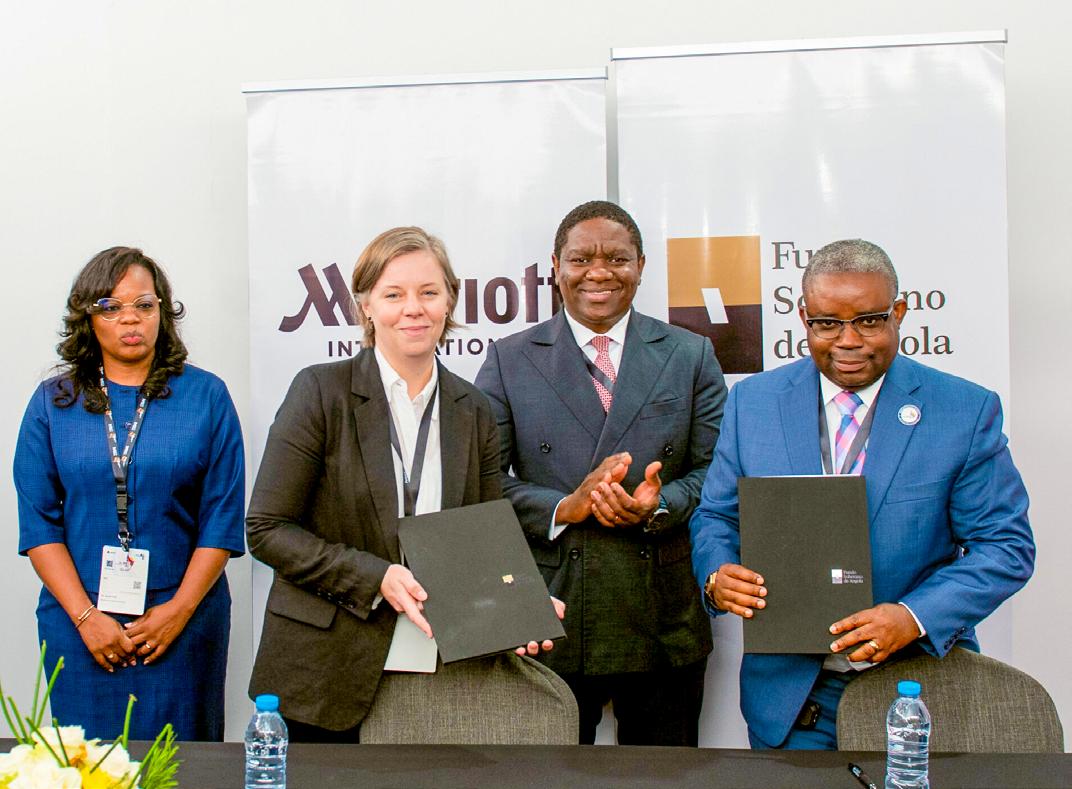
ANGOLA – Marriott International has signed an agreement with the Angola Sovereign Wealth Fund (FSDEA) to open its first Sheraton Hotels & Resorts property in the country, marking a significant step in Angola’s tourism and hospitality expansion.
The Sheraton Luanda is set to open in early 2026, combining Marriott’s global hospitality expertise with Angolan cultural elements to create a flagship property aimed at both leisure and business travelers.
The announcement was made during the US–Africa Business Summit, attended by senior Angolan officials, FSDEA representatives, and Marriott executives.
The new property aligns with Angola’s economic diversification strategy, which seeks to reduce reliance on oil revenues by expanding high-potential sectors such as tourism, infrastructure, and services.
Marriott’s entry into Angola signals growing investor confidence in the country’s market potential and stability.
The Sheraton Luanda is expected to generate new jobs, boost local supply chains, and stimulate the wider economy through increased visitor spending. It will also serve as a catalyst for ancillary industries, from transport to cultural tourism.
For Marriott, the move further expands its African footprint and reinforces the Sheraton brand’s role as a hub for community connection, modern comfort, and international service standards.
The project highlights the value of public-private partnerships in driving sustainable tourism growth.
As Angola prepares to welcome the Sheraton Luanda in 2026, the launch is poised to mark a new era in the nation’s hospitality landscape, leveraging global brand recognition to enhance its regional tourism profile.
KENYA – The Kenya Tourism Board (KTB) and the African Tourism Board (ATB) have entered into a strategic partnership to accelerate tourism growth, investment, and collaboration across the continent.
The alliance aims to enhance Africa’s standing as a premier global tourism destination through improved infrastructure, strengthened trade ties, and unified marketing strategies.
A key focus of the partnership is the African Tourism and Investment Forum (ATIF) 2025, set for October 1–3, 2025, in Nairobi.
The event will bring together more than 350 exhibitors and 5,000 tourism leaders, providing a platform for networking, investment discussions, and knowledge exchange.
ATIF 2025 will run alongside the Magical Kenya Travel Expo (MKTE) 2025, East Africa’s leading travel trade event, also hosted at the Uhuru Gardens National Monument and Museum.
Both events will highlight themes such as infrastructure development, digital transformation in tourism, environmental sustainability, and positioning Africa as a unified, competitive destination brand.
KTB CEO June Chepkemei said the collaboration “leverages Kenya’s gateway position to African tourism and strengthens our ability to attract both regional and global investors.”
ATB leadership echoed the sentiment, noting that joint efforts will create lasting economic impact through sustainable tourism practices.
By uniting industry leaders, policymakers, and global stakeholders, the partnership seeks to unlock business opportunities, deepen intra-African collaboration, and boost visitor numbers from emerging and established markets.
The move reflects a shared vision to harness Africa’s rich cultural, natural, and economic assets, transforming the continent into a diversified, high-value tourism powerhouse.






– Canopy by Hilton has opened its first South African property in Cape Town’s Longkloof District, marking a significant milestone for the lifestyle brand known for blending modern design with authentic local culture.
Catering to both leisure and business travelers, the Canopy by Hilton Cape Town offers a curated, experience-led stay in one of Africa’s most dynamic urban destinations.
The Longkloof location, celebrated for its heritage
architecture, eclectic dining, and proximity to the central business district, gives guests easy access to the city’s vibrant cultural and commercial life.
The hotel features locally inspired interiors showcasing regional art, materials, and storytelling, fostering a sense of place that resonates with both visitors and residents.
Amenities include stylish guest rooms, versatile meeting spaces, and curated dining venues, designed to meet the evolving demands of modern travelers.
The launch is part of Hilton’s broader African expansion strategy, reflecting the continent’s rising appeal to global hospitality brands.
Industry observers note that Canopy’s entry reinforces Cape Town’s reputation as a hub for innovative hospitality concepts that emphasize local connection and immersive experiences.
As the Longkloof District continues its transformation, the new hotel is expected to attract discerning travelers seeking both authenticity and world-class comfort, while contributing to the area’s economic vitality.
UAE – Etihad Airways has announced the addition of seven new destinations to its global network, further reinforcing Abu Dhabi’s position as a premier hub for tourism, culture, and international business.
The latest routes include Almaty (Kazakhstan), Baku (Azerbaijan), Bucharest (Romania), Medina (Saudi Arabia), Tbilisi (Georgia), Tashkent (Uzbekistan), and Yerevan (Armenia).
This expansion connects Abu Dhabi with key cities across the Caucasus, Central Asia, and Eastern Europe, diversifying Etihad’s geographic reach.
Services to Medina will launch in November 2025, catering to both religious pilgrims and leisure travelers. The remaining six destinations are scheduled to commence from March 2026, with ticket sales opening soon.
By targeting these emerging and underserved markets, Etihad aims to meet growing demand for direct connections while offering seamless travel options for business and leisure passengers.
The airline’s expanding network also supports Abu Dhabi’s broader economic strategy of diversification and increased global connectivity.
With these additions, Etihad has announced 29 new destinations in 2025 alone, combining year-round and seasonal routes.

This reflects the carrier’s agile approach to route management and strategic growth, capitalizing on market opportunities as global travel demand continues to rise.
Abu Dhabi stands to benefit from enhanced tourism inflows and stronger trade links, further cementing its role as a key aviation gateway between Asia, Europe, and the Middle East.
Etihad says the network expansion underscores its commitment to delivering world-class service, extensive connectivity, and innovative travel experiences, while strengthening partnerships across the aviation industry.
As the airline continues to broaden its reach, these new routes highlight Etihad Airways’ proactive strategy to optimize its hub and create meaningful, direct links that support the UAE’s global positioning.
AFRICA – African food technology leader Chowdeck has acquired Mira, a fast-rising provider of modern point-of-sale (POS) systems for restaurants, cafés, and hotels, in a strategic move that expands its reach beyond delivery services into fullscale hospitality technology solutions.
The acquisition marks a pivotal step in Chowdeck’s evolution into a one-stop technology partner for food businesses, equipping operators with digital tools to improve efficiency, boost profitability, and adapt to fast-changing market demands.
Mira’s cloud-based platform, already powering more than 500 hospitality businesses, integrates sales tracking, inventory management, kitchen operations, and customer engagement in a single, intuitive dashboard.
Its ability to address common pain points, such as stock inconsistencies, fragmented reporting, and operational bottlenecks, has made it a trusted tool for many of Africa’s most dynamic hospitality brands.
The enhanced platform will streamline order processing,
real-time analytics, payment handling, and customer loyalty programs, helping both independent operators and large chains remain competitive on a global stage.
Industry analysts say the deal reflects growing demand for integrated, user-friendly technology in Africa’s hospitality sector, as businesses seek tools that enhance efficiency, transparency, and guest satisfaction.
Chowdeck plans to roll out Mira’s solutions to existing and new partners in phases, backed by comprehensive training and technical support.
The company envisions becoming the trusted technology backbone for Africa’s food and hospitality industries, helping small and medium-sized enterprises access operational sophistication once reserved for larger players.
With this acquisition, Chowdeck aims to accelerate the digital transformation of Africa’s hospitality sector, setting new standards for service, sustainability, and long-term growth.


SAUDI ARABIA – Radisson Blu has expanded its footprint in Saudi Arabia with the opening of the Radisson Blu Hotel, Riyadh Al Sahafa, strategically located in the city’s lively Sahafa District.
Just 20 minutes from King Khalid International Airport, the property offers 171 contemporary rooms and suites designed to cater to both leisure and business travelers.
Guests are within easy reach of key attractions, including Riyadh Boulevard, King Salman Social Center Park, and Vox Cinema Riyadh Park, as well as major commercial hubs such as Al Nakheel Mall, King Salman Park, and the King Abdullah Financial District.
Dining options span a range of tastes: Al Diwan Restaurant serves an international menu in a welcoming setting, The Terrace Restaurant and Lounge offers Mediterranean-inspired dishes, and Al Multaqa Café in the lobby specializes in fresh coffee and pastries.
The hotel is also family-friendly, featuring a dedicated Kids’ Club for children aged 4–10. For fitness enthusiasts, a fully equipped gym is available on-site.
Business travelers will find the property well-suited for events and meetings. The Sidra Grand Ballroom, measuring 560 square meters, accommodates up to 400 guests, making it ideal for conferences, weddings, and large gatherings.
Five additional meeting rooms, all fitted with advanced audiovisual technology, provide flexible options for corporate needs.
Architecturally, the Radisson Blu Riyadh Al Sahafa blends modern design with local character, featuring floor-to-ceiling windows that flood interiors with natural light and offer sweeping city views.
The opening reinforces Radisson Blu’s commitment to delivering stylish, high-quality hospitality experiences in the Kingdom.
With its prime location, comprehensive amenities, and proximity to both cultural landmarks and business districts, the new property is poised to become a standout destination in Riyadh’s competitive hotel market.
UAE – Indian specialty coffee brand Blue Tokai Coffee Roasters is set to make its Middle Eastern debut through a strategic partnership with Ambrosia Gulf, which will act as its master franchisee for the Gulf Cooperation Council (GCC) region.
The collaboration will see the launch of Blue Tokai’s first café in the United Arab Emirates in the fourth quarter of 2025, marking a major milestone in the brand’s international growth.
Known in India for its farm-to-cup ethos, transparent sourcing, and artisanal brewing, Blue Tokai operates more than 175 cafés nationwide and has extended its footprint internationally to Tokyo.
Ambrosia Gulf, part of Ambrosia Foods Group and backed by Pulsar Capital, has a proven record of scaling premium food and beverage brands across borders, including the successful expansion of Biryani By Kilo in the GCC.
The company will oversee the rollout of Blue Tokai cafés across the region while introducing its fast-moving consumer goods (FMCG) coffee range to retail shelves, the HoReCa sector, and direct-to-consumer platforms.
The flagship UAE café will offer an experience centered on single-estate coffees, manual brewing, and a transparent supply chain, appealing to the GCC’s rapidly growing specialty coffee culture.
Blue Tokai co-founder and CEO Matt Chitranjan described the expansion as a pivotal step into a market that values authenticity, craft, and community. He highlighted Ambrosia Gulf’s local expertise and operational strength as key drivers for building a robust café network in the region.
Ambrosia Gulf Executive Chairman Vish Narain said the partnership aligns with their vision to thoughtfully grow premium F&B offerings across the GCC, blending global best practices with local tastes.
By entering the Middle East, Blue Tokai aims to fuse India’s rich coffee heritage with world-class hospitality, positioning itself as a leading specialty coffee brand for discerning regional consumers.



















OMAN – The Ministry of Heritage and Tourism has launched construction of a landmark integrated tourism complex in Salalah, representing a RO80 million (US$208 million) investment aimed at transforming the Dhofar Governorate’s tourism landscape.
Developed in partnership with Al-Wathba Hospitality Company under a usufruct agreement signed in February 2025, the project will be managed with a long-term vision prioritizing sustainability, modern amenities, and world-class service.
Azzan Qasim Al Busaidi, Undersecretary of the Ministry, said the development supports Oman’s broader economic diversification goals by empowering SMEs, creating direct and indirect jobs, and boosting local content.
He highlighted training and qualification programmes to ensure Omani citizens play a central role in hospitality and tourism management.
Phase I, scheduled for completion in 30 months, will feature a five-star hotel with 124 guest rooms, one of Oman’s largest yacht marinas, a beach club, a state-of-the-art health club, and a curated selection of restaurants and cafés.
The facilities are designed to attract both domestic and international visitors while raising service standards in the region.
Khalid Abdullah Al Abri, Director General of Heritage and Tourism in Dhofar, called the development one of the most significant in terms of investment size and diversity of offerings.
He noted its alignment with the governorate’s tourism strategy, which has expanded through the opening of new source markets and the launch of direct flights to Salalah.
The Ministry has been actively positioning Dhofar as a premier tourism destination, enhancing infrastructure, marketing the region internationally, and developing unique experiences that blend natural beauty with luxury hospitality.
Once complete, the Salalah complex is expected to set a new benchmark for tourism infrastructure in southern Oman, reinforcing the Sultanate’s appeal as a sustainable, year-round travel destination.


AFRICA – Serena Hotels has launched the Prestige Club App, a fully tech-enabled guest loyalty platform connecting 33 properties across eight countries in Africa and Asia.
The rollout spans city hotels in Kenya, Uganda, Tanzania, Rwanda, Mozambique, and Pakistan, marking Serena’s first global membership system designed to unify and elevate the guest experience.
The Prestige Club App replaces manual processes with realtime point tracking, mobile access, and seamless redemption for hotel stays, dining, and wellness services at Maisha Spa & Health Clubs.
Members can earn and redeem points across the entire Serena portfolio, enjoying a borderless loyalty experience tailored to modern travelers seeking both convenience and personalization.
The program is structured around four tiers: Classic, Gold, Platinum, and the newly introduced Prestige Plus.
Classic is a free entry-level membership, while Gold and Platinum require earning 4,000 and 8,000 points annually.
Prestige Plus, available for an annual fee of US$95, offers tier-based discounts of 15–50% on rooms, restaurants, spas, and laundry, delivering significant savings across Serena’s outlets.
The launch event at Kigali Serena Hotel celebrated Rwanda’s cultural heritage while showcasing Serena’s blend of tradition and innovation.
Guests learned how the app enables reservations, reward redemptions, and access to exclusive offers from anywhere in the world.
Franklin Nyakundi, General Manager of Kigali Serena Hotel, reflected on the journey from Serena’s loyalty card system introduced over 12 years ago to today’s digital, borderless platform.
Azim Boolan, Global CEO of Serena Hotels, underscored the brand’s commitment to hospitality excellence and sustainability, highlighting efforts to reduce plastic use across its properties.


Melvins Tea, trusted for over 25 years.
At Melvin Marsh International, we believe tea should be more than a beverage; it should be an experience As Kenya’s original flavored tea brand, we’ve been delighting palates since 1995, starting with our iconic Tangawizi Chai Today, we offer a full spectrum of teas crafted for modern, discerning guests
“From our very f irst Tangawizi Chai to today’s diverse portfolio, our goal has always been to delight guests and help establishments stand out with beverage menus that go beyond the ordinary,” says Flora Mutahi, Founder & CEO of Melvin Marsh International
Signature Orthodox Teas – From bold Black to rare Purple Specialty & Lifestyle Blends – Chamomile Calm, Purple Bliss, Berry Blast
Instant Teas – Convenience meets flavor (3-in-1 and 4-in-1)
Gold Tea – Our flagship blend, perfect for premium settings Brand Support Collateral – Tailored for hotels, cafés, and restaurants
Recognizing that a truly exceptional cup often deserves a natural companion, Melvins has expanded its portfolio with the Melvins Bee-loved Honey
Pure, natural, and wholesome, the Melvins Bee-loved Honey complements the tea experience while catering to the growing demand for health-conscious choices in hospitality
Whether served in jars for buffets or sachets for in-room and table service, Melvins Bee-loved Honey offers flexibility for HORECA operators looking to enhance their menu with an authentic, locallyrooted sweetener

Why Partner with Melvins? A Legacy of Innovation – First to flavor tea in Kenya Premium Kenyan Ingredients – Sourced, blended, and packed locally
Customizable Solutions – For every format and guest prof ile A Guest Experience to Remember – From breakfast service to evening brews





Whether you run a boutique hotel, a modern café, or a f inedining restaurant, Melvins has a tea solution that matches your brand’s style and your guests’ expectations With Melvins, you’re not just serving tea, you’re serving heritage, wellness, and distinction, one cup at a time
UK – KFC has unveiled plans to open more than 50 new restaurants across the UK in 2025, part of a wider £1.5 billion (US$2.04 billion) investment to strengthen its footprint in the UK and Ireland.
The fast-food giant, which currently operates around 1,000 outlets, aims to add 500 new locations by 2034, reinforcing its position in the competitive quick-service restaurant sector. Expansion will target high-traffic locations, including flagship sites, drive-thrus, retail parks, leisure complexes, transport hubs, and shopping centres.
KFC is seeking both freehold and leasehold sites, offering a £20,000 (US$27,213) finder’s fee for successful recommendations. Requirements include drive-thru plots of 0.3–1.5 acres and in-line units of 1,200–2,500 sq ft.
In addition to new openings, KFC plans extensive refurbishments to modernize existing outlets with contemporary designs, upgraded interiors and exteriors, and enhanced digital ordering systems, including mobile app integration.
The move aims to improve convenience, streamline service, and elevate customer experience.
The expansion is expected to create thousands of jobs and support UK-based suppliers, underlining KFC’s commitment to the local economy.

KFC’s growth drive comes amid intensifying competition, with rivals such as Wingstop and Popeyes also ramping up UK operations.
The UK fried chicken market is estimated at over £3 billion (US$4 billion), with demand for convenient, high-quality quickservice dining continuing to rise.
By combining new openings with strategic refurbishments, KFC aims to cement its leadership while adapting to evolving consumer preferences.
The company said the investment will ensure its restaurants remain “modern, accessible, and digitally connected” to meet the needs of today’s diners.

ITALY – The Wendy’s Company has announced two major franchise agreements that will bring 190 new restaurants to Italy and Armenia over the next decade, underscoring the brand’s accelerating international growth strategy.
In Italy, Wendy’s has partnered with Your Food S.R.L. to open 170 locations nationwide by 2035.
The rollout will begin in Milan, with the first two restaurants slated to open by mid-2026. Your Food chairman Mario Resca said the partnership aims to combine Wendy’s signature
fresh, high-quality offerings with Italy’s rich dining traditions, creating a “new favorite” in the country’s quick service market.
In Armenia, Wendy’s signed an exclusive agreement with Wen Restaurant LLC to establish 20 outlets by 2030, starting with a flagship location in central Yerevan.
Wen Restaurant CEO Hrant Grigoryan said the brand’s emphasis on quality, customer care, and a modern menu will “redefine” Armenia’s quick service dining landscape.
Wendy’s International President EJ Wunsch described the deals as proof of the company’s growing global momentum, noting they bring the brand closer to its goal of 2,000 international restaurants by 2028.
He added that combining Wendy’s global standards with the local expertise of its partners will result in high-performing, market-relevant restaurants.
Both franchise groups bring strong experience in hospitality, retail, and food service. Wendy’s expects the projects to create hundreds of jobs and strengthen the quick service sector in both countries.
The expansion into Italy and Armenia reflects Wendy’s confidence in markets with discerning consumers and dynamic food cultures, positioning the brand to compete in regions where quality and innovation are key to long-term success.




ZIMBABWE – Accor has signed a landmark agreement to develop Novotel Victoria Falls, marking its strategic entry into Zimbabwe’s hospitality market and expanding its African footprint.
The deal, sealed during the Future Hospitality Summit (FHS) Africa, underscores Accor’s push into high-potential emerging markets.
Scheduled to open in 2028, the 111-room property will be developed under a management agreement with Eagle Real Estate Investment Trust (Eagle REIT), known for its tourism, hospitality, and mixed-use developments.
Located within the Eagle Heights precinct and overlooking the Masuwe River, the hotel will combine Novotel’s familyfriendly design with the dramatic natural backdrop of Victoria Falls, a UNESCO World Heritage Site and one of the Seven Natural Wonders of the World.
Planned amenities include an outdoor swimming pool, kids’ club, all-day dining restaurant, and a destination bar, catering to both leisure and adventure travelers.
The project represents a first-mover advantage for Accor in Zimbabwe and is expected to enhance the local tourism economy through job creation and the introduction of international hospitality standards.
Victoria Falls, locally called Mosi-oa-Tunya (“The Smoke That Thunders”), draws global visitors for its spectacular scenery and adventure tourism, from white-water rafting to scenic helicopter flights.
Accor’s investment aligns with Zimbabwe’s national tourism growth strategy, which aims to upgrade infrastructure and attract more international visitors.
The partnership with Eagle REIT also reinforces Accor’s commitment to long-term development in Africa, where it already operates an extensive portfolio of properties.
By bringing the Novotel brand to this celebrated destination, Accor aims to set a new benchmark for sustainable and experience-driven hospitality in the region.


KENYA – CityBlue Hotels, Africa’s fastest-growing local hotel chain, has unveiled Kilua Residences by CityBlue in Mombasa, marking its second property in the coastal city and reinforcing its expansion strategy across East Africa.
Located along the pristine shores of Shanzu, the 4-star beachfront aparthotel offers a blend of luxury and comfort for both short- and long-term stays.
The property features elegantly furnished one- and two-bedroom apartments with spacious living areas, fully equipped kitchens, and private balconies boasting panoramic views of the Indian Ocean.
Amenities cater to a broad range of guests: leisure travelers can enjoy a large outdoor swimming pool, modern fitness center, and spa, while families benefit from dedicated children’s facilities.
Business visitors have access to high-speed connectivity and proximity to Mombasa’s commercial hubs. Landscaped gardens and communal spaces provide a serene coastal retreat for relaxation or socializing.
CityBlue Hotels CEO Jameel Verjee said the launch builds on the success of the CityBlue Creekside Hotel & Suites, underscoring the group’s commitment to raising hospitality standards in Kenya’s tourism sector.
The development is a partnership between CityBlue Hotels and Gulf Homes Management Limited, blending CityBlue’s hospitality expertise with Gulf Homes’ real estate development capabilities.
The collaboration aims to attract both domestic and international travelers seeking premium, convenient, and scenic accommodation.
With its prime location, comprehensive amenities, and modern design, Kilua Residences by CityBlue is poised to become a preferred choice for holidaymakers and long-stay guests alike.
The opening strengthens CityBlue Hotels’ footprint in Kenya’s coastal tourism market and reflects its broader growth ambitions across dynamic African destinations.

– Global travel and hospitality giant TUI Group has strengthened its African footprint with the launch of two new properties under its TUI Blue and TUI Suneo brands, catering to both premium and value-conscious travelers.
In Egypt, the newly opened TUI Blue Samaya in Marsa Alam features 143 rooms and an aqua park, positioning itself as a high-end, family-friendly resort.
Blending modern design with the natural beauty of the Red Sea coast, the property offers direct access to pristine beaches and world-class coral reefs.
Guests can enjoy immersive experiences curated by dedicated BLUE® Guides, from cultural tours to nature-based activities, reflecting TUI Blue’s emphasis on authentic local engagement.
In Tunisia, the TUI Suneo Palm Beach Skanes delivers an affordable all-inclusive experience across 294 rooms set in expansive gardens.
With tennis courts, multiple pools, and organized entertainment, the resort appeals to families and active holidaymakers seeking variety and value.
Its Mediterranean location also provides easy access to Tunisia’s historical landmarks and vibrant local culture.
The openings highlight TUI Group’s dual strategy in Africa: offering upscale, experience-driven stays through TUI Blue, while providing budget-friendly, activity-rich holidays via TUI

Both properties emphasize regional flavors and cultural heritage, ensuring guests connect meaningfully with their destinations.
Beyond enhancing guest choice, TUI’s expansion supports local economies through job creation and sustainable tourism initiatives.
The company’s investments in Marsa Alam and Skanes reflect growing confidence in Africa’s tourism potential and align with its commitment to innovation and quality in hospitality.
Dubai welcomed 9.88M international visitors in H1 2025, up 6% year-on-year

UAE – Dubai’s tourism sector has achieved another major milestone, attracting 9.88 million international overnight visitors in the first half of 2025, a 6% increase compared to the same period last year, according to the Dubai Department of Economy and Tourism (DET).
Sheikh Hamdan bin Mohammed bin Rashid Al Maktoum, Crown Prince of Dubai and Chairman of The Executive Council, credited the growth to the visionary leadership of His Highness Sheikh Mohammed bin Rashid Al Maktoum and the city’s long-term strategy to position itself as a leading global
business and leisure hub.
Tourism remains central to the Dubai Economic Agenda D33, which aims to boost GDP and enhance cross-sector economic value.
DET’s approach combines public-private collaboration with aggressive global marketing, working with more than 3,000 partners worldwide to target priority markets.
In H1 2025, the GCC and MENA regions accounted for 26% of total arrivals, with 1.51 million visitors from the GCC (15%) and 1.12 million from MENA (11%).
Western Europe led as the largest source market with 2.12 million visitors (22%), followed by CIS and Eastern Europe (15%), South Asia (15%), and Asia (9%).
Dubai’s hotel sector also saw strong performance, posting an average occupancy rate of 80.6%, up from 78.7% in H1 2024.
The city’s year-round calendar of cultural festivals, business conferences, and major entertainment events continues to drive arrivals.
With sustained growth, innovative offerings, and a commitment to excellence, Dubai further cements its position as one of the world’s most visited and most desirable cities for both tourism and business.














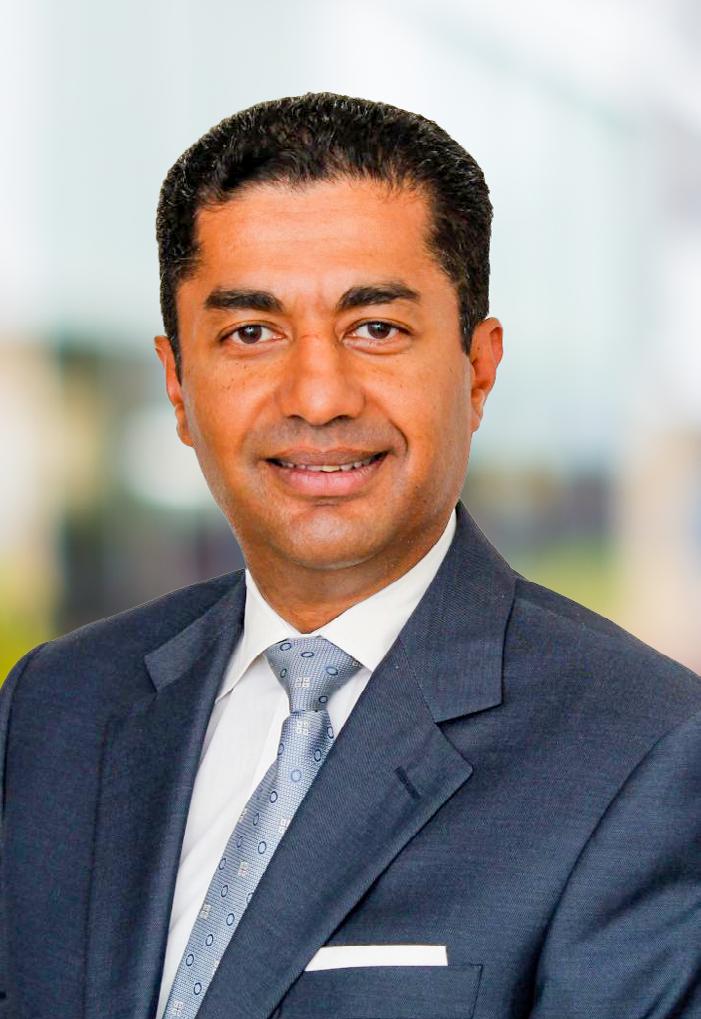
Hyatt Regency Nairobi Westlands appoints Mr. Moshi Perera as GM
KENYA – Hyatt Regency Nairobi Westlands has announced the appointment of Mr. Moshi Perera as its new General Manager, bringing a distinguished leader with more than 30 years of hospitality expertise to the helm.
Mr. Perera’s arrival marks an exciting chapter for the hotel, as his extensive background in hotel management and refined service delivery promises to further elevate guest experiences and operational standards.
In addition to his role, Mr. Perera has also been named Area Vice President for Hyatt across Sub-Saharan Africa.
This dual appointment reflects Hyatt’s strong confidence in his exceptional leadership, strategic vision, and commitment to fostering excellence throughout the region.
His broad remit underscores the group’s commitment to nurturing regional talent and consistently delivering high quality service across multiple properties.
Under his stewardship, the hotel will invest in talent development, innovative service concepts, and new guest engagement strategies aligned with global hospitality trends.
Juliana Kagwa assumes role as CEO of Uganda Tourism Board
UGANDA – Juliana Kagwa has officially assumed the position of Chief Executive Officer at the Uganda Tourism Board (UTB), marking a significant leadership transition for the country’s tourism sector.
Her appointment is widely anticipated to bring fresh energy and strategic direction to Uganda’s efforts to boost its profile as a leading travel destination in East Africa and beyond.
Kagwa arrives at UTB with nearly 20 years of professional experience spanning marketing, corporate communications, and strategic management across diverse industries.
Prior to this role, she served as Group Sales and Marketing Director at Seed Co Group, one of Africa’s foremost agricultural companies, where she honed her skills in brand positioning and stakeholder engagement.
She also held the role of Director of Corporate Relations at Diageo, a global leader in beverage alcohol, where she developed expertise in managing complex corporate partnerships and driving sustainability initiatives.
Taking over from her predecessor, Lilly Ajarova, who transitioned to a Senior Presidential Advisor role on tourism, Kagwa is expected to build on the progress made in recent years.


Accor
MEA – Accor has announced the appointment of Raki Phillips as Regional President for the Premium, Midscale & Economy (PME) division across the Middle East, Africa, and Türkiye, effective November 2025.
Phillips succeeds Paul Stevens in leading one of the group’s most strategically important regions, overseeing a network of over 250 hotels across 27 countries, along with a robust pipeline of more than 85 upcoming openings.
He will report to Duncan O’Rourke, CEO of Accor’s PME division for Middle East Africa and Asia Pacific.
Phillips brings over 20 years of global hospitality experience and is widely recognized as one of the Middle East’s most influential tourism leaders.
Most recently, he served as CEO of the Ras Al Khaimah Tourism Development Authority (RAKTDA), driving transformative growth that tripled tourism revenues and expanded the emirate’s international airlift.
He played a vital role in securing the Wynn Resorts deal, the largest foreign direct investment in Ras Al Khaimah, and launched pioneering sustainability initiatives that have positioned the destination on a progressive trajectory.
MIDDLE EAST - Emerging Travel Group has appointed Astrid Kastberg has joined the company as Managing Director of RateHawk.
In her new role, Astrid will spearhead the expansion and development of RateHawk’s B2B operations, overseeing a vast network that includes over 110,000 retail partners and more than 1,100 API partners worldwide.
Based in Dubai, she will be responsible for shaping and executing the comprehensive business strategy encompassing commercial growth, product innovation, marketing initiatives, and customer support services.
Astrid brings a wealth of experience in travel technology and leadership, positioning her to lead a multifunctional global team dedicated to enhancing the platform’s capabilities and market reach.
Her appointment reflects Emerging Travel Group’s commitment to scaling its B2B offerings and delivering cutting-edge solutions that empower travel professionals to optimize bookings and streamline operations.


Pullman Cape Town has appointed Thuthukile Moloto as its new General Manager, marking a homecoming for the seasoned hospitality leader after nearly two years in Saudi Arabia.
Moloto previously served as Cluster Director of Quality at Marriott International’s Sindalah, part of the NEOM mega-project.
With over 15 years of experience across Africa and the Middle East, Moloto brings expertise in launching, rebranding, and managing top-tier hotels under global brands.
She plans to position Pullman Cape Town as the definitive choice for both leisure and business travelers by combining international best practices with South Africa’s signature warmth.
Her vision includes enhancing guest experiences, deepening sustainable operations, and fostering an empowered team culture through mentorship.
Thuthukile’s arrival also coincides with Accor’s expanding She Leads initiative, a global movement dedicated to unlocking female potential through mentorship-driven programming focused on empowerment, equity, and collective progress.
SAUDI ARABIA – ACCIONA Living & Culture has announced the appointment of Yannic Leveque as Vice President for the Middle East.
With more than two decades of international expertise in architecture, construction, and cultural destination development, and a decade of experience in the GCC, Yannic is uniquely positioned to lead ACCIONA’s cultural and hospitality initiatives aligned with Saudi Vision 2030.
Yannic’s impressive portfolio boasts some of the Middle East’s most iconic and complex projects.
These include the Guggenheim Museum Abu Dhabi, Dubai’s Uptown Tower and Atlantis The Royal hotel, alongside vital cultural and hospitality developments such as Clinique La Prairie and Jayasom Hotels in Amaala, and Laheq Island under The Red Sea Global Projects.
Beyond the region, Yannic has contributed to major European endeavors like the Building Václav Havel for the European Parliament.
Her multidisciplinary knowledge and leadership in managing such landmark developments illustrate an ability to navigate large-scale, multifaceted projects combining artistic vision and technical discipline.



BY VICTOR ATSALI
In the heart of Westlands, Nairobi’s buzzing commercial and entertainment hub, Park Inn by Radisson Nairobi has quietly established itself as a benchmark in Kenya’s urban hospitality sector. In a city witnessing rapid transformation, the hotel has become known for offering more than just accommodation. It delivers an experience shaped by comfort, genuine care, and a strong commitment to responsible operations.
As Nairobi attracts more regional and international business, the pressure is mounting for hotels to not only meet global expectations but also reflect local values and realities. Park Inn by Radisson Nairobi is doing both, while remaining remarkably consistent.
To unpack how the hotel is shaping hospitality in the Kenyan capital, HORECA Middle East & Africa sat down with General Manager Dominic Prendergast, whose insights offer a compelling view into a property that is designed with purpose and powered by people.
Park Inn by Radisson Nairobi offers 140 modern, well-equipped guestrooms, designed to meet the expectations of today’s blended traveler, someone who often juggles business, leisure, and everything in between. The rooms combine soundproofing, highspeed internet, and ergonomic workspaces, with thoughtful interior touches and plush bedding.
“Whether travelers visit for business, leisure, or a blend of both,” Prendergast explained, “these accommodations strike the perfect balance between functionality and relaxation.”
For guests seeking more exclusivity, an entire executive floor provides additional privacy, superior service, and upgraded amenities. This offering caters to senior business professionals, VIP guests, and long-stay clients seeking both comfort and discretion.
The design aesthetic remains consistent throughout the property, clean, practical, and unpretentious, underscoring the hotel’s focus on delivering value without compromising quality.

Hospitality today is as much about food as it is about comfort, and at Park Inn by Radisson Nairobi, the dining experience has been crafted to serve a diverse, global clientele. The all-day restaurant fuses Kenyan culinary traditions with international classics. Guests can enjoy dishes made from locally sourced ingredients that reflect seasonal freshness and chef-led creativity.
“Dining at the hotel provides more than just meals, it offers an experience,” said Prendergast. “The restaurant reflects the richness of Kenyan flavor and the expectations of global travelers.”
Complementing the dining room is the rooftop bar, which has become a sought-after destination in Nairobi’s after-hours social scene. With panoramic views of the city, a well-curated cocktail list, and an upbeat atmosphere, it has evolved into a venue for everything from relaxed sundowners to formal cocktail events.
This blend of flavor, setting, and service reinforces the hotel’s position not just as a place to stay, but as a place to gather, celebrate, and unwind.
Park Inn by Radisson Nairobi has carefully positioned itself as a reliable choice for corporate stays, relaxed getaways, and spontaneous city-based retreats. Its ability to serve a cross-section of guests, from multinationals and regional
organizations to couples and staycationers, has become one of its defining strengths.
The hotel features five flexible meeting rooms, each designed for functionality and efficiency. Fitted with modern audiovisual equipment, high-speed Wi-Fi, and versatile


THE
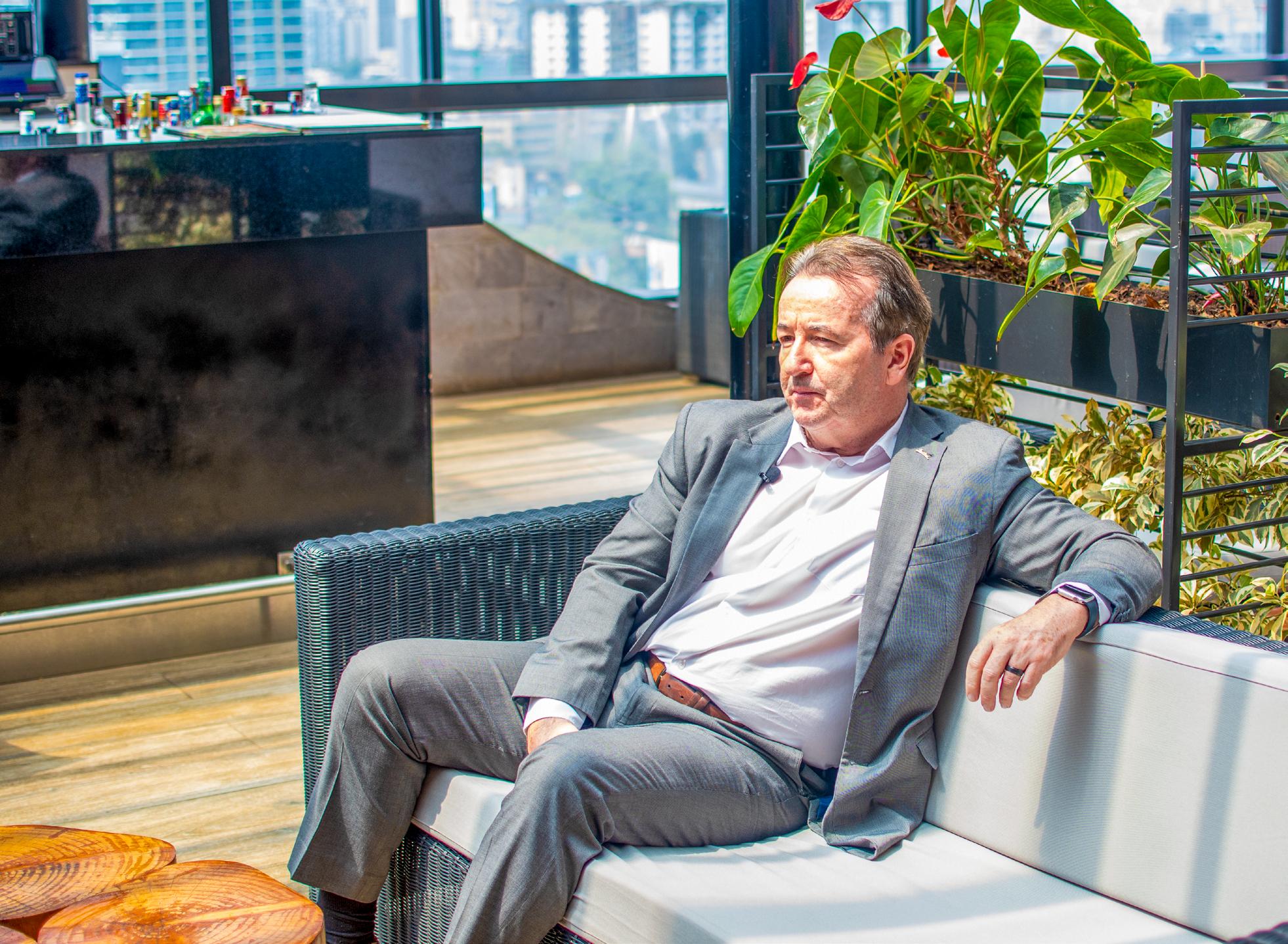
layouts, the spaces accommodate everything from formal board meetings and presentations to networking cocktails and celebratory dinners.
“We offer adaptable meeting rooms, equipped with state-ofthe-art audiovisual technology,” Prendergast noted, “suitable for everything from executive meetings to celebratory occasions.”
While corporate travelers benefit from easy access to

business services and Nairobi’s commercial infrastructure, leisure guests and staycation seekers find the same property appealing for its rooftop views, poolside lounging, and intimate dining spaces. This broad utility has enabled the hotel to stay relevant across seasons and economic cycles.
Park Inn by Radisson Nairobi was not a happy accident, it was the result of careful strategy. In 2009, the property’s owners secured land in Westlands based on clear market signals that Nairobi was on the cusp of a hospitality boom. After years of design, development, and brand partnership, the hotel opened in 2017 as the first Park Inn by Radisson in the country.
The arrival of COVID-19 in 2020 posed serious threats to that momentum. Yet, the hotel adapted quickly and emerged stronger, leaner, more focused, and more agile.
“We learned to do more with less,” said Prendergast. “That period refined us. It made us sharper, more resilient, and closer as a team.”
As the hospitality market rebounded, and with a 54% increase in room capacity in Nairobi since 2020, the hotel has held its position by delivering on what it promises: clean, comfortable stays backed by an international brand standard and a local understanding of service.
What truly distinguishes Park Inn by Radisson Nairobi is not just its amenities, it’s the way those amenities are delivered. Every staff member lives by Radisson’s “Yes, I Can!” service culture, a philosophy that empowers people to act with optimism, initiative, and accountability.
“Our guests leave happy, feeling their time and money were well spent, eager to return,” said Prendergast. “Every moment of their stay matters to us.”
This commitment translates into countless daily gestures, special birthday surprises, personalized service for long-stay guests, dietary accommodations, and efficient handling of lastminute requests. Training programs are continuous, practical, and built into every department.
The result is a team that doesn’t just execute tasks but creates moments, turning what could be an ordinary stay into a lasting memory.
At Park Inn by Radisson Nairobi, sustainability is not a box to be ticked—it’s a mindset embedded in the hotel’s strategy, operations, and team culture. As a proud participant in the Radisson Hotel Group’s “Move to Zero” initiative, the hotel has committed itself to achieving net-zero carbon emissions by 2035, with actionable progress underway on multiple fronts.
The property’s reverse osmosis water filtration and recycling system irrigates landscaped gardens, significantly reducing its reliance on external water sources. Rooms are equipped with keycard-activated energy systems that cut power use when unoccupied, while the elimination of singleuse plastics in guest areas has shifted the hotel toward refillable glass dispensers and filtered water stations.
“We recognize our environmental responsibilities and the urgency of acting today for tomorrow,” said Prendergast. “Our commitment goes far beyond compliance.”

Sustainability also stretches beyond the hotel walls. Vendors and suppliers are audited through a 50-point checklist that evaluates environmental practices, packaging efficiency, and even employee welfare. By holding partners to higher standards, the hotel is encouraging industry-wide change.
“We believe purchaser demand drives market transformation,” Prendergast added. “It’s not always easy, but
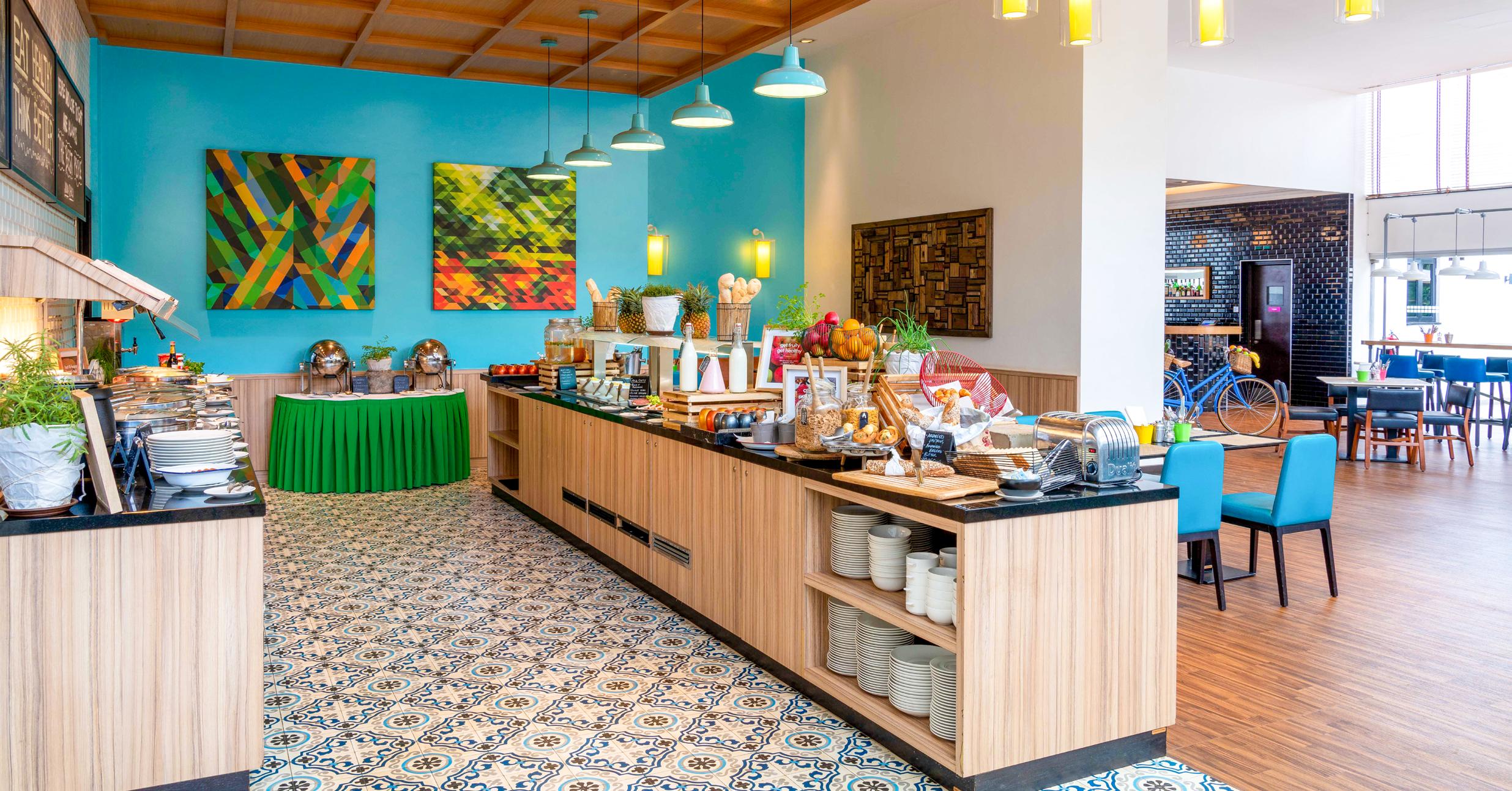

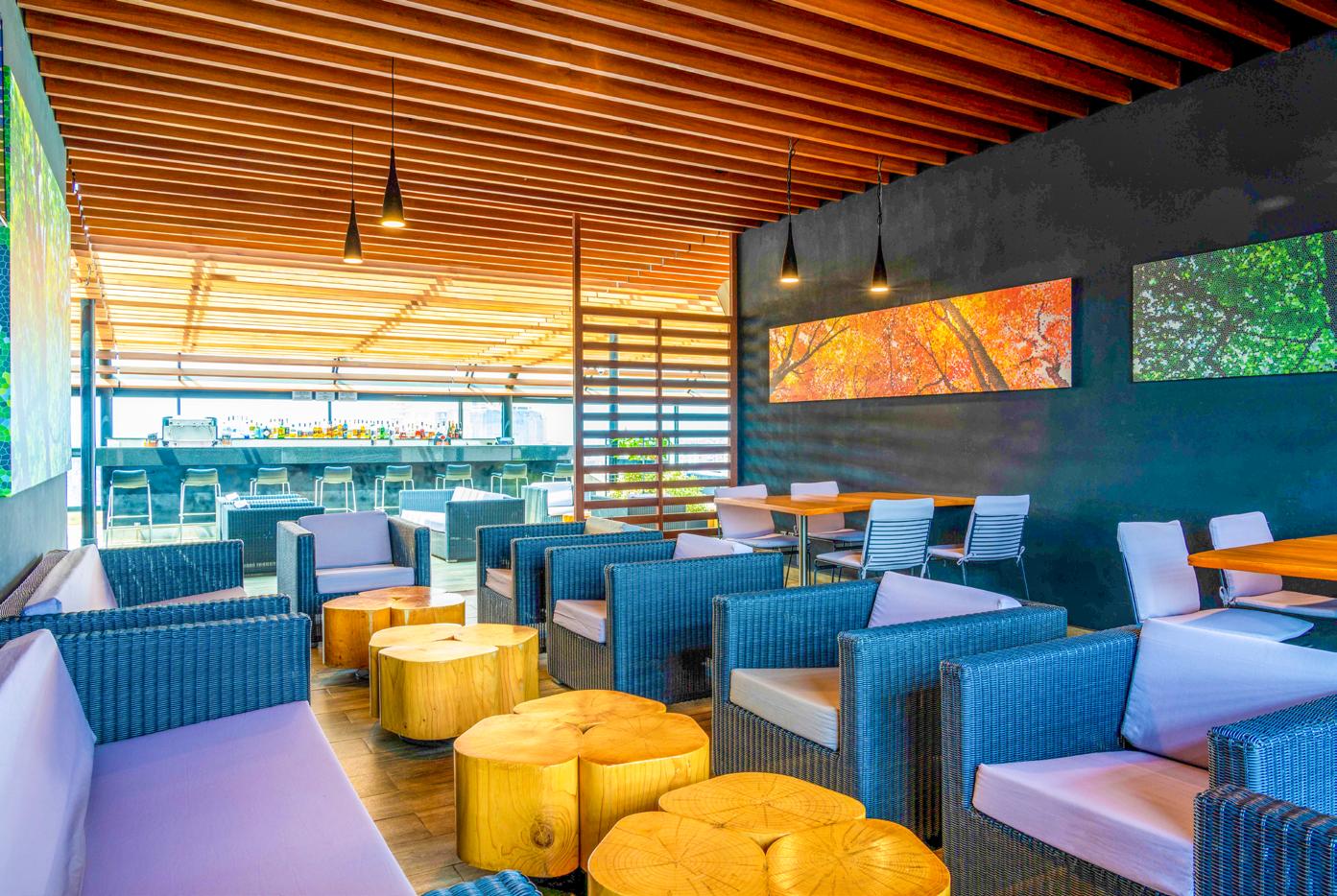
visible, accessible, and aligned with team goals.
“Leadership, to me, is about building trust, empowering others, and staying engaged with both guests and employees,” he shared.
change begins with expectations—and we are willing to lead by example.”
Internally, regular town halls, e-learning modules, and peer-to-peer workshops ensure staff are not only aware of sustainability goals but empowered to act on them. In the kitchen, food waste is minimized through portion planning and inventory control, while sourcing leans heavily on local suppliers to reduce emissions and strengthen community ties.
Through this 360-degree approach, the hotel isn’t just ecoconscious, it’s eco-intentional.
While hospitality is fundamentally human, technology plays a strategic support role at Park Inn by Radisson Nairobi. Digital check-in kiosks, mobile key systems, and online booking tools enhance speed and convenience for guests.
Behind the scenes, real-time monitoring systems track energy and water use, while cloud-based procurement software helps the hotel assess sustainability metrics across the supply chain.
“Technology frees our people to shine, increasing efficiency while preserving personalized service,” said Prendergast. “That balance is critical.”
In every case, the use of tech is designed to empower staff, not replace them, ensuring the guest experience remains personal and intuitive.
General Manager Dominic Prendergast leads by example. With years of hospitality experience across the continent, he brings not just knowledge but a philosophy of active leadership: being
Under his stewardship, the hotel has maintained strong performance, low turnover, and a well-respected brand reputation. His leadership style emphasizes transparency, mentorship, and a shared purpose.
Park Inn by Radisson Nairobi is not chasing growth for its own sake—it is building sustainability into its DNA, driving consistent training, responsible sourcing, and community engagement into its roadmap for the future.
“We want to grow the right way, by staying true to our purpose and never losing the human essence of hospitality,” Prendergast affirmed.
Planned initiatives include expanding digital guest offerings, deepening CSR partnerships, and introducing even more robust energy reduction targets, all designed to keep the hotel ahead of the curve without losing its human touch.
Park Inn by Radisson Nairobi is more than a hotel, it is a quiet powerhouse of purpose-driven hospitality. Through its smart design, dedicated people, and embedded sustainability practices, it sets a high standard for what hospitality can look like in Nairobi and beyond.
From the business executive attending a conference to the weekend staycation guest enjoying rooftop cocktails, the hotel continues to deliver an experience rooted in quality and care.
As Nairobi evolves into a global city, Park Inn by Radisson Nairobi remains a defining part of its hospitality identity, a place where comfort meets conscience. HRMEA



From July 2 to 4, 2025, Nairobi’s Sarit Expo Centre came alive with the sights, aromas, and flavours of the inaugural Africa Food & Drinks Festival. Co-located with the Africa HORECA Expo and AFMASS Food Manufacturing Expo, the event served as a premier platform for showcasing African culinary excellence.
Organized by FW Africa and supported by title sponsors Soko, Pearl, and Treatos, the festival brought together top chefs, pastry experts, baristas, mixologists, and food enthusiasts from across the continent. Visitors were treated to three days of live cooking demonstrations, tasting pavilions, artisanal showcases, mixology presentations, and exclusive chef masterclasses.
The program celebrated Africa’s diverse gastronomic traditions, from hearty meat roasts and fragrant rice dishes to innovative vegan creations







and handcrafted desserts. Standout participants included Chef Sheila and her team from Uganda, whose fusion of traditional Ugandan flavours with modern presentation drew crowds; ParkInn by Radisson’s Chef Emmanuel, who impressed with his signature seafood creations; and the Best Western Hotel chefs, renowned for their refined pastries and contemporary twists on African classics.
Beyond the sensory delights, the event fostered valuable networking opportunities for culinary professionals, food producers, and hospitality players. Attendees engaged directly with industry leaders, explored new trends, and discovered fresh business opportunities.
Running daily from 10 AM to 6 PM, the Africa Food & Drinks Festival offered both seasoned gourmets and curious food lovers a chance to experience the continent’s flavours in one vibrant space.



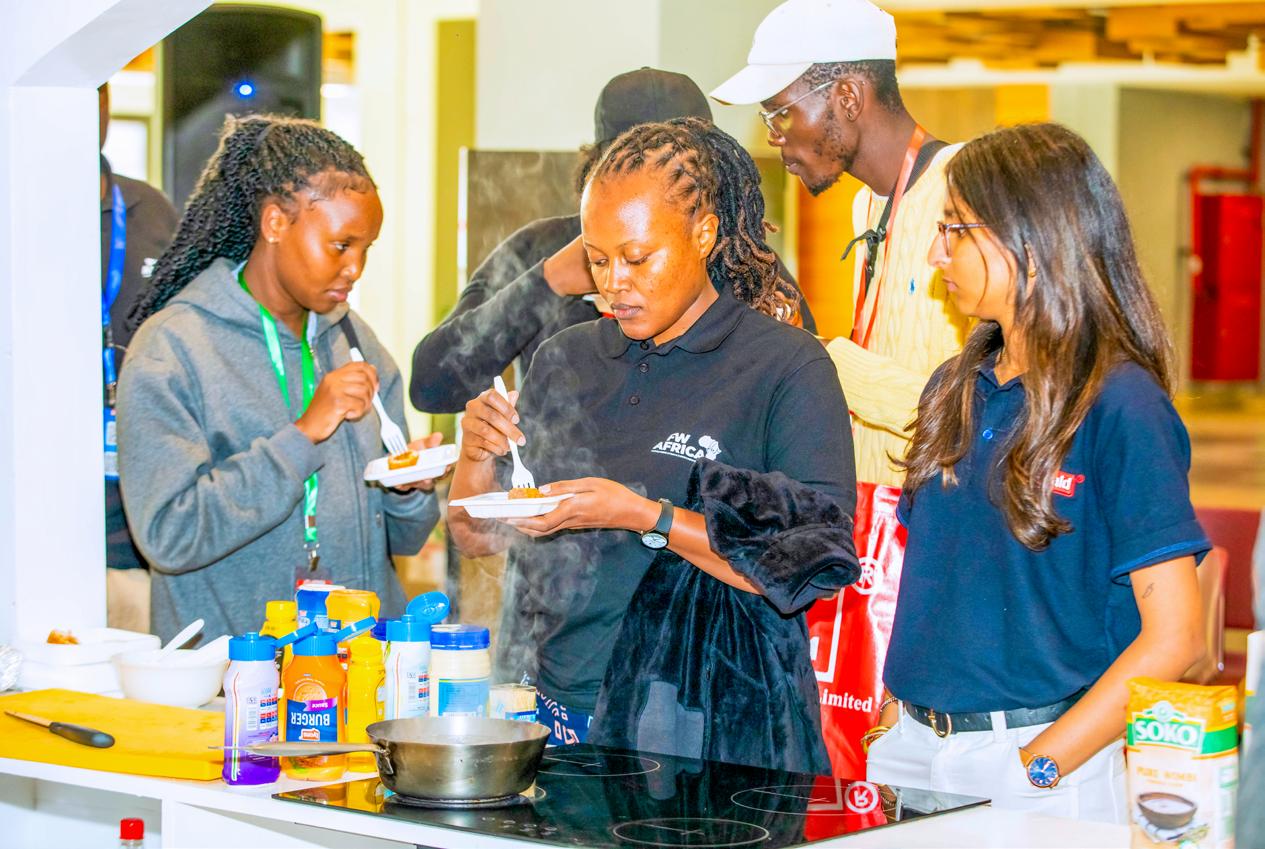
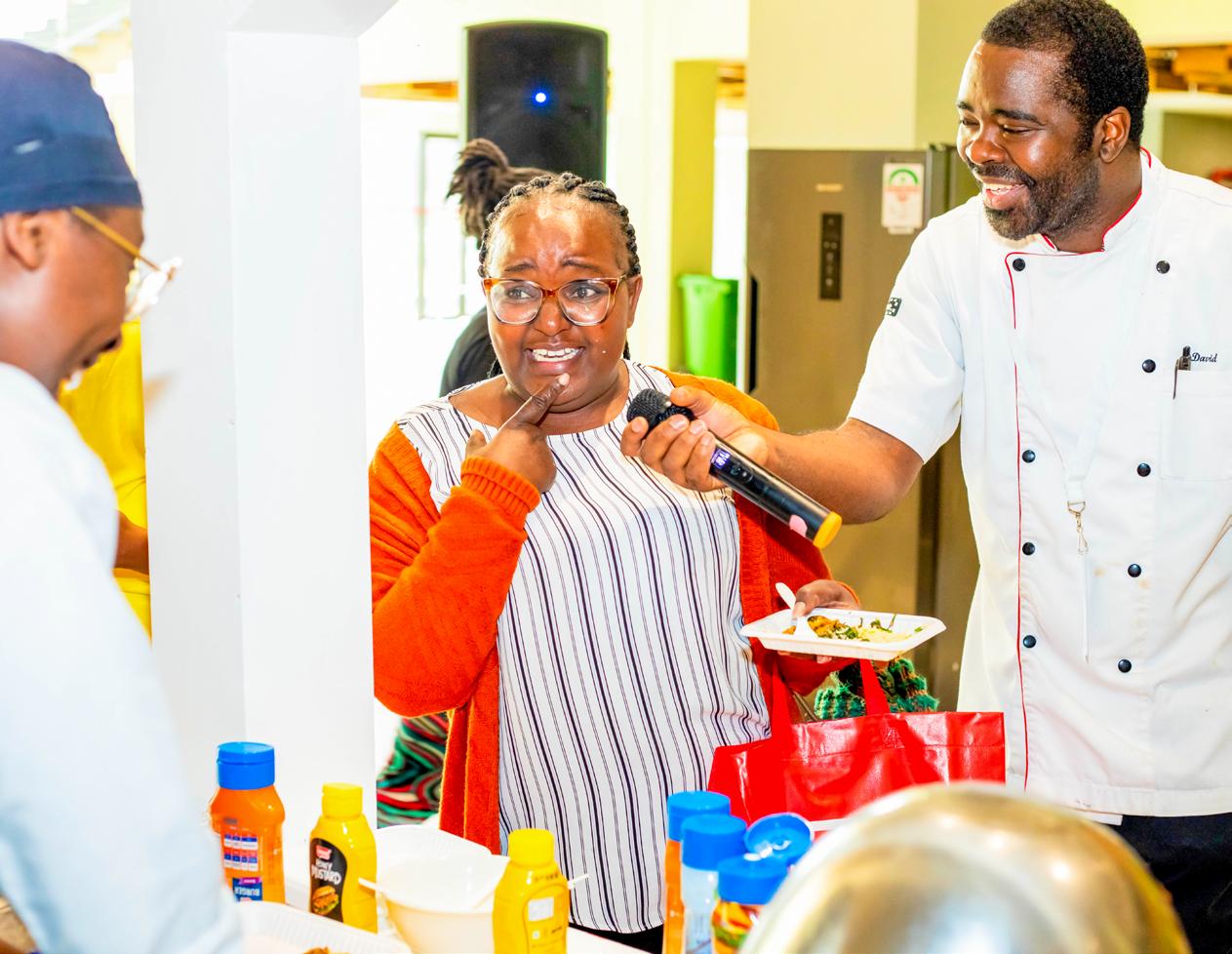












BY VICTOR ATSALI
Some chefs create meals. Others create moments.
Chef Emmanuel Aluda, Head Chef at Park Inn by Radisson Nairobi, is one of the latter.
With over 20 years in the kitchen, he has turned culinary excellence into both a profession and a purpose. We sat down with him to explore how a passion born in a home kitchen led him to one of the most respected hotel kitchens in Nairobi today.
Let’s start at the beginning. Who is Chef Emmanuel?
I’m Emmanuel Aluda, currently the Head Chef at Park Inn by Radisson in Westlands. I’ve been in this role for three years now, but I’ve been in the industry for two decades. My culinary journey began early, helping my mother, aunties, and siblings prepare meals back home. I fell in love with cooking as a child and made up my mind by high school that I’d pursue hospitality.
When did your journey in professional kitchens begin?
After finishing high school in 2003, I joined Norfolk Hotel as an apprentice the following year. That’s where I met Chef Emon Mullan, who mentored me and set me on the path I’m still walking today. He introduced me to French cuisine and fine dining, and taught me the discipline required to survive in a professional kitchen. His influence still shapes the way I cook and lead.
What has your experience at Park Inn been like? What makes it special?
I joined Park Inn just after the COVID-19 pandemic. The industry was shaken, and the hotel was rebuilding its team. From day one, what stood out was the collaboration. The bond between the kitchen and service teams was strong. I worked closely with the F&B Manager, Roy, we were aligned like brothers.
That chemistry helped us achieve incredible milestones, like catering for 1,200 guests at the German Embassy. It opened the door to events for the EU, Netherlands Embassy, and more. For a hotel of our size, that was a huge leap.
How would you describe your approach to cooking and team leadership?
My days begin with prayer. Before anything else, we align ourselves spiritually as a team. Cooking, for me, is about more than ingredients, it’s about intention and energy. I also draw strength from my family. My wife and kids are my biggest supporters. Despite the long hours and demanding schedule, they’ve always stood by me. That support fuels my creativity and commitment in the kitchen.
What’s your culinary style, and what kind of food do you enjoy creating?
I gravitate toward fine dining, with strong French influences. That’s a result of my training and personal taste. I love taking local ingredients and transforming them into something elegant and unexpected. I focus on presentation, texture, and flavour balance. Cooking is like storytelling, you want to take the guest on a journey, not just fill their stomach.
Do you have a go-to signature dish that reflects your style?
Absolutely. For starters, I like preparing a salmon tartare, it’s fresh, vibrant, and refined. My main is usually duck breast, which I love pairing with sweet sauces. And dessert? Always chocolate fondant. It’s rich, comforting, and brings a smile to everyone’s face. These dishes carry memories. Duck reminds me of village life, and salmon was the first exotic ingredient I fell in love with as a young chef. The

fondant is simple, but it wins hearts every time.
What moments from your career at Park Inn stand out the most?
The catering for 1,200 guests at the German Embassy is definitely one of the most memorable. It was the first time we pushed ourselves to that scale, and it turned out to be a defining moment. Another highlight was our wine pairing event with Viva Global. Each course was matched with a different wine, and the feedback we got from guests was amazing. It was the kind of experience that makes all the hard work feel worth it.
Do guest reactions play a big role in how you measure success?
They do. Guest satisfaction is the ultimate validation. When someone loves what you’ve made, it lifts you. You can put hours into a dish, but if it doesn’t land with the guest, it hurts. On the other hand, when someone compliments a dish, or comes back for more, it tells you you’re doing something right. I always want to know how they felt about the taste, the look, the texture. It helps me grow and refine my craft.
Every journey has challenges. What have been some of yours?
Time has always been the biggest hurdle. During peak seasons, I spend more time at work than at home. Early in my career, I didn’t know how to handle that. But over the years, I’ve learned to create space for family. When I’m off, I’m really present. I’ve also leaned into my faith—prayer helps keep me grounded through the pressures and demands.
The culinary world is constantly evolving. How do you stay ahead of trends?
Travel and exposure have been key. I’ve worked or trained in places like Dubai, the U.S., Ghana, and Uganda. Every new place teaches you something, from techniques to plating to how guests interact with food. Technology helps too. These days, you can learn anything online. We also keep our menus fresh by changing them every six months, and we introduce weekly chef’s specials to stay creative and engaged.
Do culinary trends shift like fashion?
Yes, very much. Styles come and go, whether it’s how we plate, what cooking methods are popular, or what ingredients are in demand. Sous-vide cooking is huge right now. And then there’s seasonality: menus have to adapt based on what’s available. Being flexible, responsive, and open to change is part of being a modern chef.
What trends are you noticing in terms of what guests are asking for?
Healthy eating is big. We now see far more vegan and vegetarian requests than we did even two years ago. That has pushed us to explore new ingredients and methods. Making plant-based dishes taste just as good—and look just as appealing—as

anything else on the menu is a challenge I enjoy. You can’t rely on cream or butter anymore, so you get more creative with herbs, oils, and vegetables.
Sustainability is a major focus in hospitality today. How do you approach it in your kitchen?
We take sustainability seriously. Park Inn is Green Key certified, which means we commit to responsible practices. For instance, our eggs come from free-range farms, and we label them so guests know. We trace our produce from farm to fork, actually visiting our suppliers, verifying their processes, and keeping full records. If something ever goes wrong, we know exactly where it came from.
Food waste is also managed carefully. We plan menus based on seasonal ingredients, control portions, and find smart ways to repurpose ingredients. Sustainability isn’t a trend for us, it’s part of how we operate every day.
After 20 years in the kitchen, what keeps you going?
Purpose. I cook for my family, for my team, and for every guest who trusts me with their meal. Cooking is an act of love, it’s about connection, comfort, and creativity. As long as there are people willing to sit at the table, I’ll keep showing up in the kitchen.
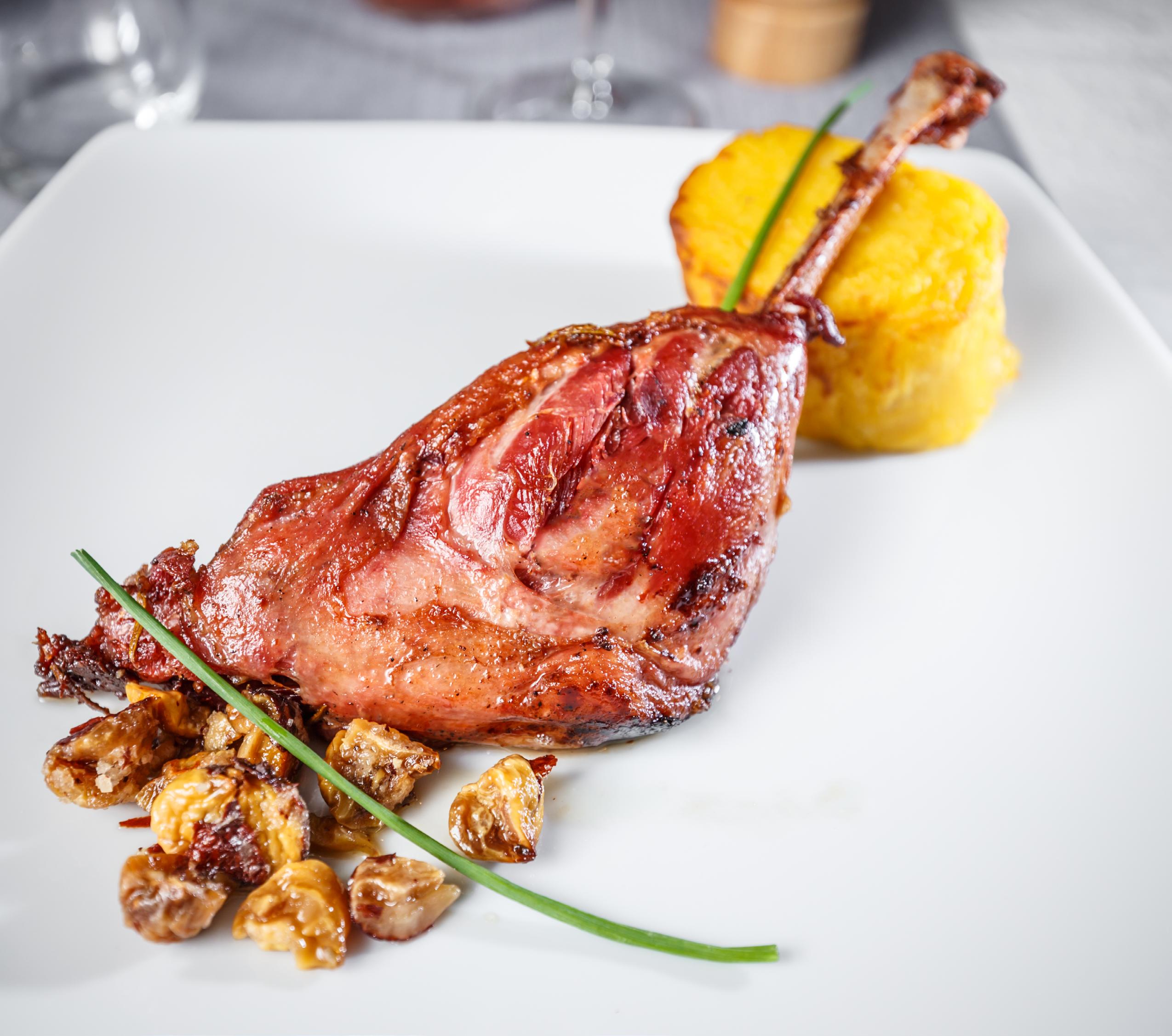
Ingredients:
- 450g fresh salmon fillet, skin removed
- 10g finely chopped dill
- 60g finely chopped white onion
- 10g chopped fresh chives
- 15ml freshly squeezed lemon juice
- 5g Dijon mustard
- Salt and pepper to taste
Instructions:
- Dice the salmon into small pieces and mix with dill, onion, chives, lemon juice, and mustard.
- Season with salt and pepper.
- Serve garnished with coral tuille, pepper jelly
Ingredients:
- 4 duck legs
- 250g duck fat
- 2 cloves garlic, minced
- 5g Fresh thyme
- 5g Cinnamon sticks
-5g Cardamon seeds
- 15ml light soy sauce
- Salt and pepper to taste
Instructions:
- Preheat oven to 150°C
- Season duck legs with salt, pepper, and thyme.
- Place duck legs in a baking dish with the cinnamon and cardamon and cover with duck fat.
- Bake for 2-3 hours or until tender and falling off the bone.
- “fish’’ out the legs from the fat
- Serve with mashed potatoes and vegetables drizzled with a black currant sauce
FONDANT
Ingredients:
- 200g dark chocolate
- 100g granulated sugar
- 80g all-purpose flour
- 200g butter
- 4 large eggs
- 5ml Vanilla extract
- Pinch of salt
Instructions:
- Preheat oven 160°C. Butter baking ramekins.
- Melt chocolate with butter in a double boiler.
- Mix flour with salt.
- Whisk eggs and sugar till pale, and vanilla.
- Pour in the melted chocolate and add the flour then mix until smooth.
- Pour into ramekins and bake for 12-15 minutes or until edges are set and centers are still gooey.
- Let cool for 1 minute, then invert onto plates and serve
BY VICTOR ATSALI
Tucked away in a high-end residential area of Nairobi is a bar that has quietly, yet powerfully, redefined the city’s nightlife. Re\Volver Cocktail Bar, helmed by Anup Devani, is not your average watering hole. It’s a space where science, art, and storytelling collide in the form of meticulously crafted drinks served in an intimate, 36-seater setting.
While it may have started as an afterthought, Re\Volver has emerged as one of Africa’s most respected bars, earning a spot on the World’s 50 Best Discovery list. But its story is less about awards and more about purpose. “Re\Volver wasn’t built to chase lists or hype. It was built because I wanted to create something meaningful,” says Devani.
Mr. Devani didn’t begin his career in hospitality. With a background in clinical genetics, his approach to cocktails is strikingly scientific. "I see cocktails as a complex balancing act; using unusual flavours and trying to blend them together is the real challenge,” he explains.
The idea for Re\Volver came unexpectedly. While on honeymoon in the US, his wife fell in love with high-end bars. Fast forward a few years and a vacant space next to their family restaurant. She encouraged him to try something similar. "I wasn’t sure at first. But once I got behind the bar, I was hooked," Devani recalls.
He began experimenting with flavours, techniques and ingredients, building his knowledge from the ground up. “I started by making drinks for friends and getting their feedback. Some of them had travelled extensively and knew what world-class cocktails tasted like. Their honesty helped shape what Re\Volver became.”
From the beginning, Re\Volver set itself apart through its attention to detail. The glassware, the ice, the sourcing, and even the guest experience are all curated. Seasonal menus are built around themes,


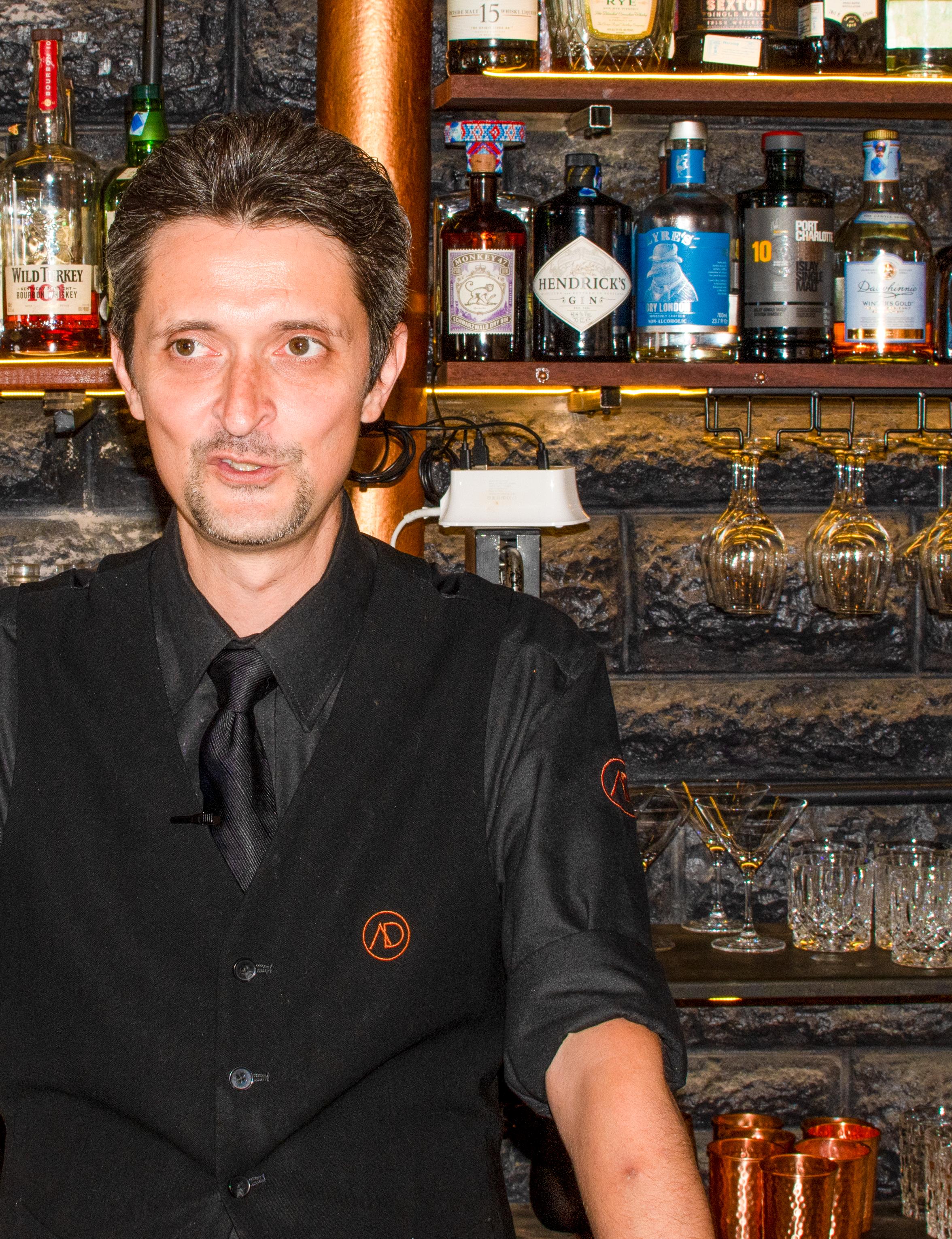

THE INTIMACY HELPS US FOCUS ON CRAFT. WE DON’T WANT TO SCALE UP AND LOSE THE MAGIC.
ANUP DEVANI - FOUNDER, RE\VOLVER

with the latest exploring international gastronomy and culture. "We spend months working on a menu before it goes live. Every drink tells a story,” says Devani.
Re\Volver also experiments with foraged ingredients and locally grown herbs to create distinct flavours that reflect both global standards and local identity. “We’re trying to build something unique to Kenya, not just copy what’s out there,” he says.
Re\Volver’s high standards have attracted meaningful collaborations, none more impactful than its partnership with Don Julio. “It’s not just about having their bottle on the shelf. It’s about alignment in values: excellence, authenticity, and storytelling,” Devani explains.
The partnership has birthed exclusive tastings, educational events, and cocktail experiences built around the brand’s ultra-premium tequila. “Don Julio 1942 is not just a tequila; it’s a conversation starter,” says Devani. “We wanted to show our guests that tequila isn’t just for shots. It can be sipped, appreciated, and celebrated.”
He emphasises how the partnership goes beyond branding. “Don Julio brings resources and expertise to the table. We’ve been able to host private tastings, pairings, and even staff training sessions that elevate our entire offering,” he shares.
For Re\Volver, the collaboration represents more than product placement. It marks a broader shift in how international luxury brands view Nairobi. "For a brand like Don Julio to invest in us signals that Kenya has something powerful to offer in global cocktail culture," he notes.

Devani taught himself the craft, learning behind the bar with the help of well-travelled friends and brutally honest feedback. Today, he expects the same humility and curiosity from his staff. "We don’t just hire bartenders; we hire storytellers, listeners, and learners."
He draws a distinction between mixologists and bartenders. “A mixologist can make a good drink. A bartender can make you feel seen,” he says. That guestcentric ethos shapes every interaction at Re\Volver.
Training is ongoing and intensive. Devani invests in research, encourages his team to learn from global leaders, and pushes for constant evolution. “You can’t build something world-class if you’re not willing to put in the work every single day.”
With just 36 seats, the bar delivers highly personalised service. Menus are refreshed every six to nine months, and the team experiments with agave-based spirits like mezcal and tequila in response to global and local shifts. "Kenyan guests today are adventurous. They want to learn, explore, and appreciate. They’re drinking less, but better," says Devani.
He believes in staying small to remain creative. “The intimacy helps us focus on craft. We don’t want to scale up and lose the magic,” he says. The setting allows for genuine interaction, detailed service, and space for curiosity.
This philosophy has made Re\Volver a place where guests return not just for the drinks, but for the experience. “We want people to feel like every visit is different. That’s why we never stand still,” he adds.
Looking ahead, Devani is focused on deepening Re\ Volver’s impact rather than expanding its footprint. “I’m not interested in opening ten Re\Volvers. I’m interested in making this one better than it was yesterday,” he says.
That means sourcing rare ingredients, sending himself and his team abroad for training and exposure, and continuing to push boundaries. But most of all, it means finding and building a community that appreciates the art of the cocktail. “Nairobi is ready. The city is evolving, and we want to evolve with it,” he concludes.
Re\Volver is also mentoring upcoming bartenders, hosting industry nights, and building relationships with local suppliers to strengthen Kenya’s position on the global stage. “If we grow together, we grow stronger,” Devani says.
As Nairobi inches toward becoming a global nightlife hub, Re\Volver offers a glimpse into what’s possible. It shows that a great bar doesn’t need glitz or gimmicks. Sometimes, all it takes is a story well told, a drink well made, and a guest well understood.






BY VICTOR ATSALI
Dubai’s restaurant scene is nothing short of dazzling, a city where luxury meets innovation, and where every week seems to bring a new opening promising the next big thing. From rooftop lounges to immersive dining concepts, the city is a playground for culinary creativity. But in a landscape crowded with spectacle, standing out takes more than just flair, it takes soul. That’s where COCO Restaurant & Lounge comes in.
Founded by creative visionary Naz Choudhury, COCO doesn’t just follow trends, it bends them. Blending cultural depth with cosmopolitan energy, COCO offers more than a night out; it curates a full sensory journey. Here, dining transforms into storytelling, music becomes connection, and each guest is part of something larger than themselves.
In a city known for big statements, COCO’s difference lies in its detail, the care, the heart, and the purpose behind every experience. Through Naz’s unique lens, we explore how COCO is reshaping the way Dubai gathers, celebrates, and expresses itself.
GENESIS OF DISRUPTION: ORIGINS AND BRAND IDENTITY
What personal experiences or overlooked trends in the industry inspired you to create something that didn’t exist before?
The catalyst for COCO was my repeated encounters with two extremes in the dining world, one, exclusive environments that felt intimidating;

two, mass-market venues that lacked any sense of occasion. Dubai, with its ceaseless ambition and diversity, seemed hungry for a third way: a place where the line between luxury and inclusivity was gracefully blurred.
Experiences at legendary hotspots in London, New York, and Asia convinced me that a venue’s vibe could influence the pulse of an entire city. COCO was conceived to challenge the conventional bringing the grandeur of global lifestyle venues into a Dubai context, but with a twist. Here, you’re not just an observer; you’re part of the unfolding theatre every night.
How does the unseen lighting, sound, and the intangible “mood” inform the guest journey at COCO?
Atmosphere is an art, often noticed in its absence

rather than its presence. At COCO, our team choreographs every invisible detail. Lighting morphs with the hour, from gentle golden glows that invite conversation in the early evening to dynamic, colored spectrums that set the stage as the night deepens.
Our soundscapes aren’t accidental; DJ sets are composed in dialogue with the kitchen and floor teams so momentum builds collectively. Even the routes our staff take across the dining room, or the intervals at which scent diffusers subtly shift, are tuned to sustain a sense of flow, where guests feel gently transported out of the everyday as soon as they arrive. There’s always a sense of anticipation, a subtle promise that anything could happen next.
Can you share unique “rituals” at COCO that transform simple interactions into shared memories?
At COCO, ritual matters more than routine. Our welcome is bespoke staffs train not just for efficiency but for intuition. When a new dish launches, it’s not simply served; a host might present it with a story of its inspiration, or a mini spectacle. Special occasions aren’t upcharged, they’re personalized: our team has been known to coordinate impromptu performances or unveil

surprise off, menu dishes to mark anniversaries or birthdays. The idea is for guests to sense sincerity and creativity in every interaction. Even small rituals, like a personalized shisha flavor blend or a handwritten note accompanying the bill, are designed to spark connection long after a visit ends.

How does COCO build suspense and curiosity from the moment guests first interact with the brand, even before they walk in?
Anticipation is woven into every touchpoint. Rather than static online content, our team engineers' campaigns that are part mystery, part invitation. Limited, series events or menu drops are teased with cryptic hints on social media and select guests may receive invitations that reveal only a dress code or a thematic color, never the exact experience waiting for them. Booking confirmation emails may include playful clues: perhaps alluding to a “hidden” room or a menu element that’s unlocked only by mentioning a word at the door. This living narrative means the COCO experience starts far before a guest sits and lingers as they speculate about what’s next.
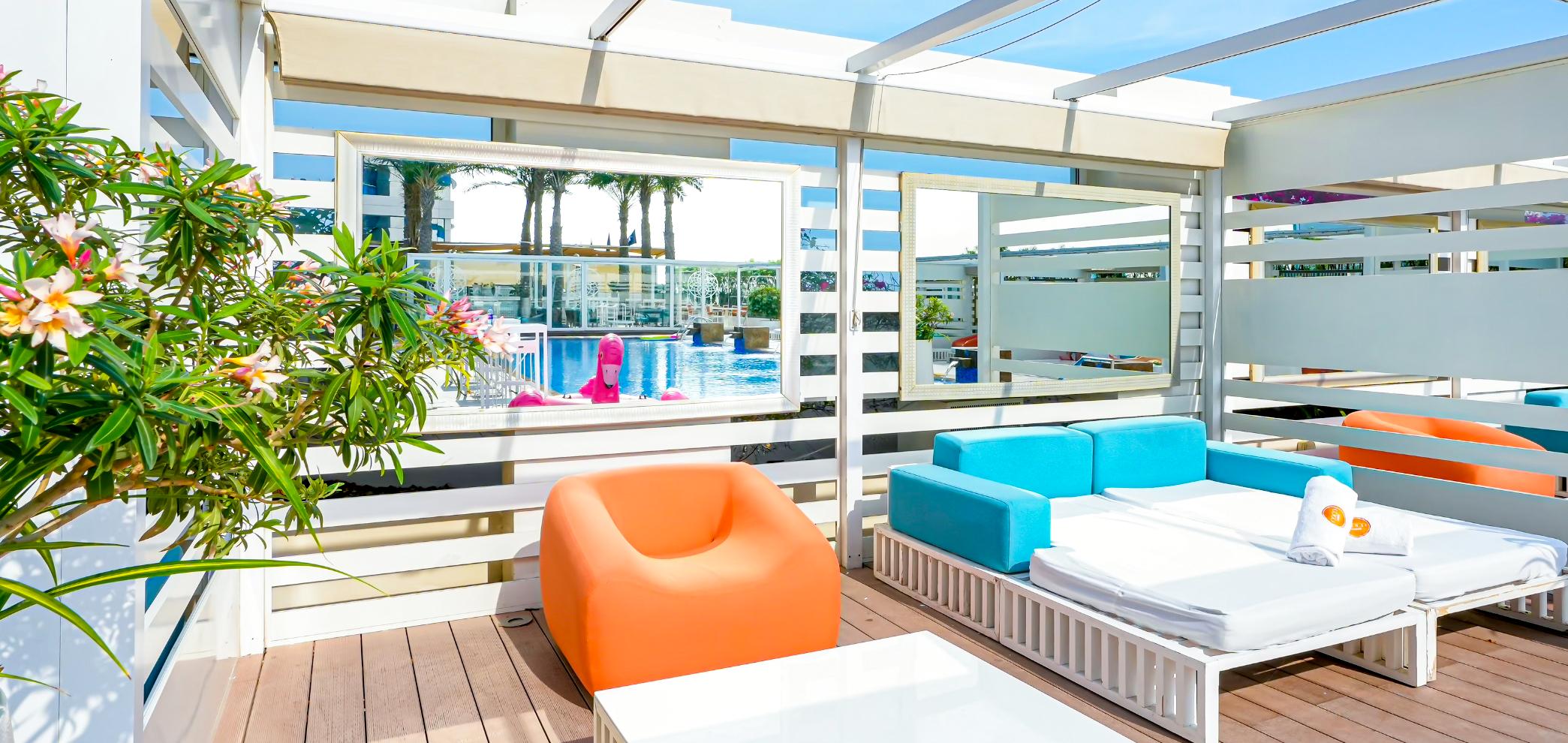
How have guest contributions unexpectedly led to menu innovation or new experiences at COCO?
Our most passionate guests have become both inspiration and collaborators. One of our now, signature mocktails was born from a guest’s request for something based on Persian pomegranate traditions; another regular inspired the décor twist in our Moon Room with their feedback about lighting and acoustics.
We keep comment cards and encourage DMs on socials, actively incorporating serious and playful ideas alike. The chef collective reviews trends but also rotates in dishes or drinks that riff on the community’s favorites or inside jokes. The result is a sense of dynamic co-authorship, guests don’t just consume at COCO, they help shape its evolution.
What inspired your resistance to a traditional bar program, and how have guests responded to COCO’s “Redemption Bar” concept?
We saw a gap: an emerging crowd seeking sophistication without spirits. The Redemption Bar is our answer, focusing on the craft of the beverage as a sensory adventure, herbs, botanicals, and seasonal fruits star in complex, show-stopping drinks.
The feedback has been overwhelming: guests love the showmanship without the hangover and appreciate the nod to wellness. Athletes, artists, and business leaders alike have made COCO’s Redemption Bar a new kind of social anchor, a
OUR
IS FLUID, EACH ITERATION WILL REFLECT NOT CARBON-COPY BRANDING, BUT EVERYTHING WE’VE LEARNED ABOUT SENSORY STORYTELLING AND INCLUSIVE HOSPITALITY.
safe space where every toast is inclusive and anyone can join the energy of Dubai’s nightlife, no matter their lifestyle choices.
How do you blur the lines between food, performance, and visual art at COCO?
Every corner is designed as a creative canvas. Beyond rotating art installations by local creatives, the menu itself is full of surprises, a chef might emerge from the kitchen to introduce the inspiration behind a signature dish, or a dancer’s silhouette may briefly echo a theme of the night. The synergy is deliberate: tasting menus inspired by visual art, or a cocktail developed to mirror the mood of a live musician.
On some evenings, courses arrive paired with miniperformances, transforming dinner into a multi-sensory show. This integration makes COCO not just a destination but a creative laboratory in Dubai’s cultural landscape.


Beyond charity galas or publicized campaigns, what behind-the-scenes efforts does COCO make to uplift Dubai’s community and environment?
Our impact is rooted in daily choices. Rather than grand gestures, we opt for sustained action-partnering with smallscale Emirati farms, even when logistically more complex, so our ingredients are as local and fresh as possible. Biodegradable takeaway packaging and innovative food waste reduction systems are now the default, not an afterthought.
We believe mentorship is best done quietly: COCO regularly hosts shadow evenings for aspiring chefs and hospitality professionals from underserved backgrounds. Our commitments are rarely announced in press releases but are visible in our operational DNA and in the diversity of our team and creative collaborators.
What surprising lessons did adversity, especially the pandemic, teach your team, and how does that change the way COCO responds to future challenges?
Adversity brought us perspective. The constant presence of uncertainty during the pandemic made empathy our guiding value. Transparent leadership meetings involved everyone, from chefs to support staff, in plotting solutions to shifting restrictions and consumer anxieties. This openness-built trust, which helped COCO remain a tightknit, agile operation even as external forces changed unpredictably.
We discovered the power of digital community: Instagram
live streams and virtual masterclasses kept the brand vibrant, and guests engaged from afar. Now, every new hurdle is met not by retrenchment, but with curiosity and experimentation, inviting our audience into the journey rather than shielding them from realities.
Without giving too much away, can you tease future projects or evolutions for COCO that even regulars might not anticipate?
COCO’s evolution is written in surprises. Behind the scenes, we’re shaping immersive wellness pop-ups, merging spa culture, cuisine, and live art for limited experiences. Future plans include seasonal menu collaborations with culinary artists from as far as Latin America and Japan, and ongoing experiments with “hidden worlds", unique spaces within the restaurant that transform character and function with the changing calendar.
Our expansion philosophy is fluid: as COCO branches into new neighborhoods and, eventually, new cities, each iteration will reflect not carbon-copy branding, but everything we’ve learned about sensory storytelling and inclusive hospitality. At COCO, the next chapter is always being written, and even our regulars can never quite predict the script.
From its inception, COCO has never aimed for the obvious. Through the collaborative leadership of Naz Choudhury and a passionate team, COCO continuously redefines hospitality for Dubai’s creative class and global nomads alike. By prioritizing rituals over routines, surprise over predictability, and community over transaction, COCO makes every visit not just a dinner out, but an invitation into a living, changing story. HRMEA
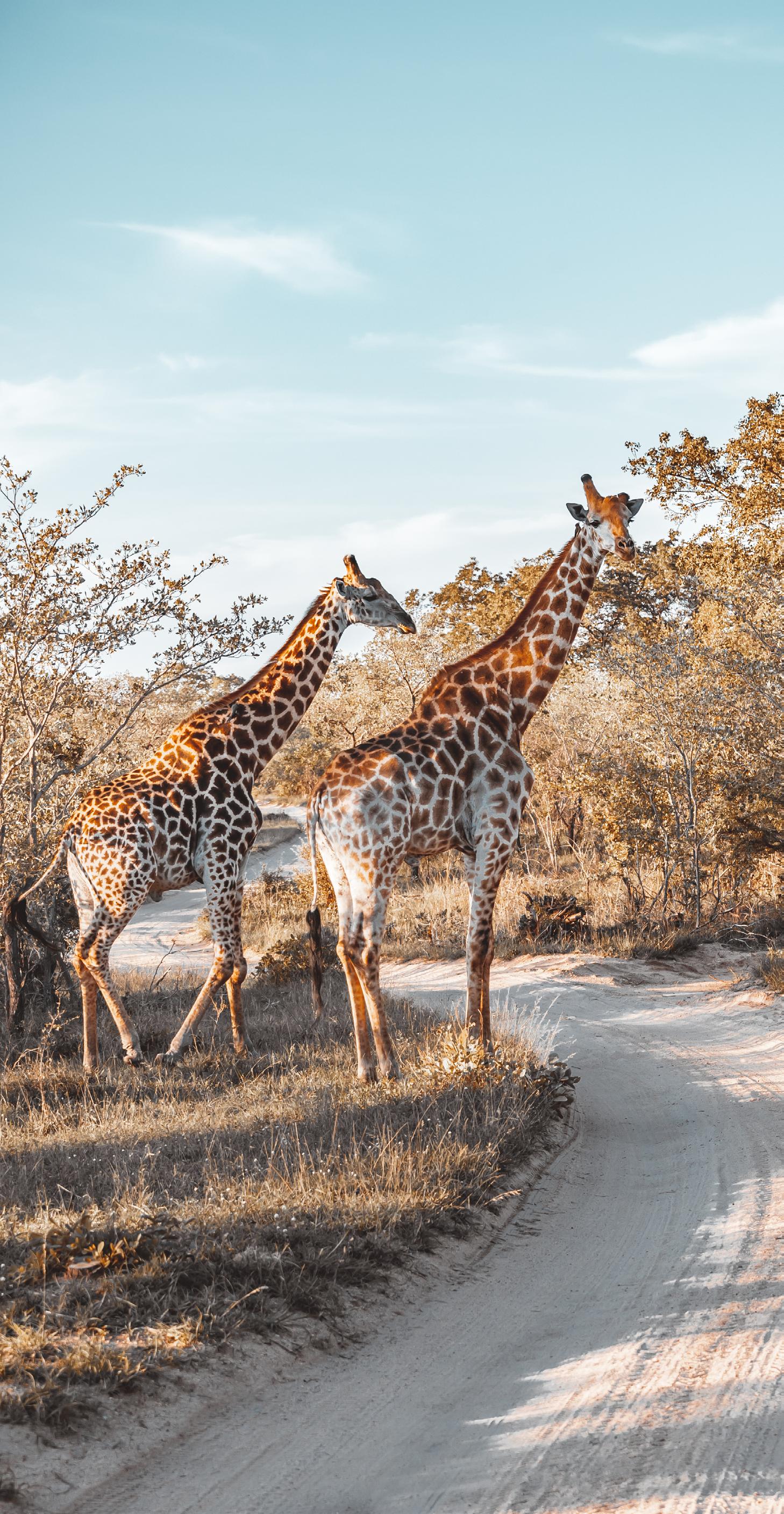

BY VICTOR ATSALI
Few travel experiences rival the magic of a safari in Sub-Saharan Africa, where golden savannahs stretch beyond the horizon, wildlife roams free, and guests are immersed in the rhythms of nature. At the heart of this experience are safari lodges that do far more than offer luxury accommodation; they serve as gateways to unforgettable adventures, cultural connection, and ecological awareness.
Across Kenya, Tanzania, and South Africa, the region’s most iconic safari destinations, these lodges are not only curating world-class hospitality but also championing sustainability. From conserving fragile ecosystems to empowering local communities, they are proving that tourism can be a force for good. By integrating responsible practices into every aspect of their operations, these lodges show that profitability and preservation are



not opposing goals, but complementary pillars of long-term success.
Kenyan safari lodges are recognized leaders in fusing ecosensitivity with authentic, impactful business models. Angama Mara stands out for integrating sustainability across its operations. According to Ecotourism Kenya, Angama Mara’s environmental management policy encompasses energy and water conservation, solid waste segregation, and advanced greywater treatment systems.
The Angama Foundation receives a contribution from every guest night, funding local healthcare, education, and conservation initiatives. These efforts not only benefit local Maasai communities but foster strong loyalty among visitors and long-term operational stability.
Angama’s commitment goes further, its partnership with the Big Life Foundation in Amboseli preserves over 1.6 million acres of wilderness, ensuring lease payments and tourism revenue flow directly back to over 800 Maasai landowners. According to Hotel Designs and ATC News, this innovative land lease model guarantees more than US$11 million in community benefit over 25 years, strengthening local economies and deeply embedding sustainability into the business’ core.

Mara Serena Safari Lodge is another sustainability innovator. As reported by Serena Hotels and the Aga Khan Development Network, the lodge is fully solar-powered, meeting all its energy needs through a partnership with Mettle Solar OFGEN. This technological leap reduces carbon emissions and shields the business from energy price volatility,

all while supporting conservation in one of Africa’s most iconic reserves. The move to solar has also been celebrated as a flagship example for hospitality across East Africa.
Additionally, Mara Serena employs water recycling and waste reduction initiatives, contributing to substantial cost savings per industry sources. These efforts are aligned with the property’s broader environmental strategy, as described in the Kenyan sustainability platform MasaiMara.ke, which emphasizes efficient infrastructure and strong conservancy partnerships.
Sarova Mara Game Camp demonstrates that social and environmental initiatives can be tightly interwoven. According to The Knowledge Warehouse and Ecotourism Kenya, Sarova’s approach spans everything from on-site organic kitchen gardens and glass water bottling eliminating singleuse plastics, to tree planting drives with over 500 seedlings planted annually, and a robust cultural partnership with local Maasai for economic empowerment.
The company places a strong emphasis on local sourcing and employment, which not only cuts logistics costs but

LODGES THAT HAVE FULLY TRANSITIONED TO 100% SOLAR POWER REDUCE ENERGY-RELATED EXPENSES EVEN FURTHER, BY UP TO 90%, SPENDING APPROXIMATELY US$5,000 PER YEAR MAINLY ON MAINTENANCE AND ANCILLARY POWER NEEDS.
aligns with UN Sustainable Development Goals. Community engagement also results in guest loyalty, business resilience, and recognition as a socially responsible brand.
Saruni Samburu in Northern Kenya is lauded for its conservation-driven model, as highlighted by The Long Run and Saruni Basecamp’s annual impact reports. Operating within the Kalama Conservancy, Saruni partners directly with local landowners, funding over 200,000 acres of protected wilderness.
The lodge employs 86% of its staff from the local community and directs significant lease and conservation fees to area residents, channeling more than US$3.9 million into local livelihoods. These partnerships have fueled biodiversity,
protected endangered species, and empowered women economically through initiatives such as beadwork collectives. Such engagement ensures that the financial benefits of tourism remain in the community, solidifying both the lodge’s long-term business prospects and its conservation mission.
Across Kenya, industry observers and companies themselves note that eco-friendly building, solar power, and resource-efficient management are becoming widespread. Many lodges have gained eco-certifications and support revenue-sharing models with private conservancies, benefiting both nature and local people. According to EcoAdventure Safaris, these changes not only attract more high-value travelers but increase operational efficiency industry-wide.
In Tanzania, luxury and sustainability go hand-in-hand, with several lodges garnering international attention for their pioneering eco-practices. Singita Sasakwa Lodge in the Grumeti Reserve partners with the Grumeti Fund to manage critical landscapes and wildlife. According to coverage by Go2Africa, Singita’s solar power facilities have drastically lowered energy dependence on fossil fuels, reducing operating costs.
Their community engagement programs provide meaningful local employment, funding education, and healthcare. This integrated approach has won Singita both

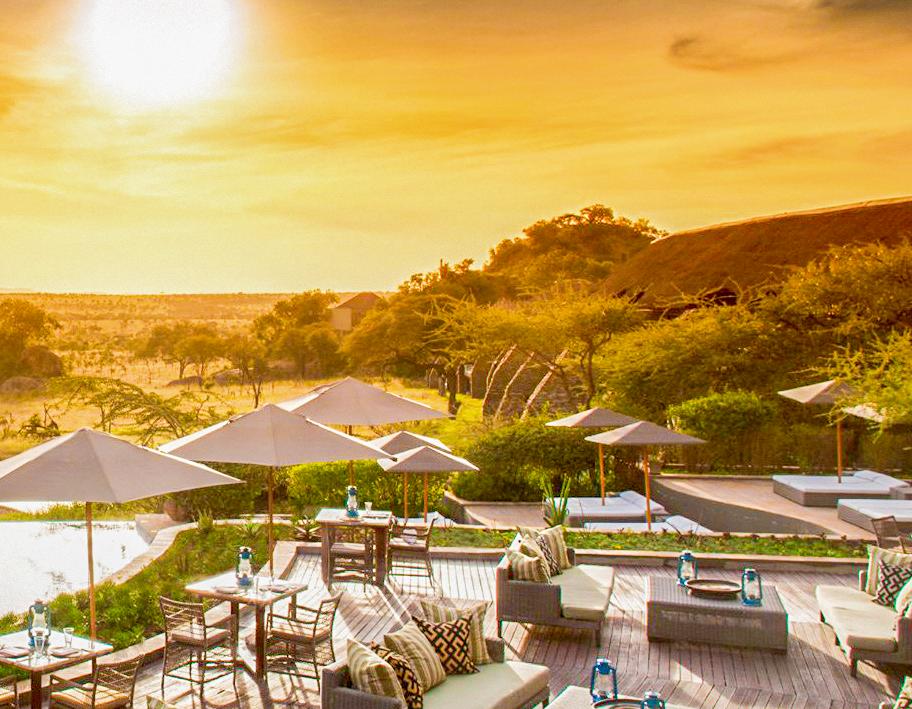



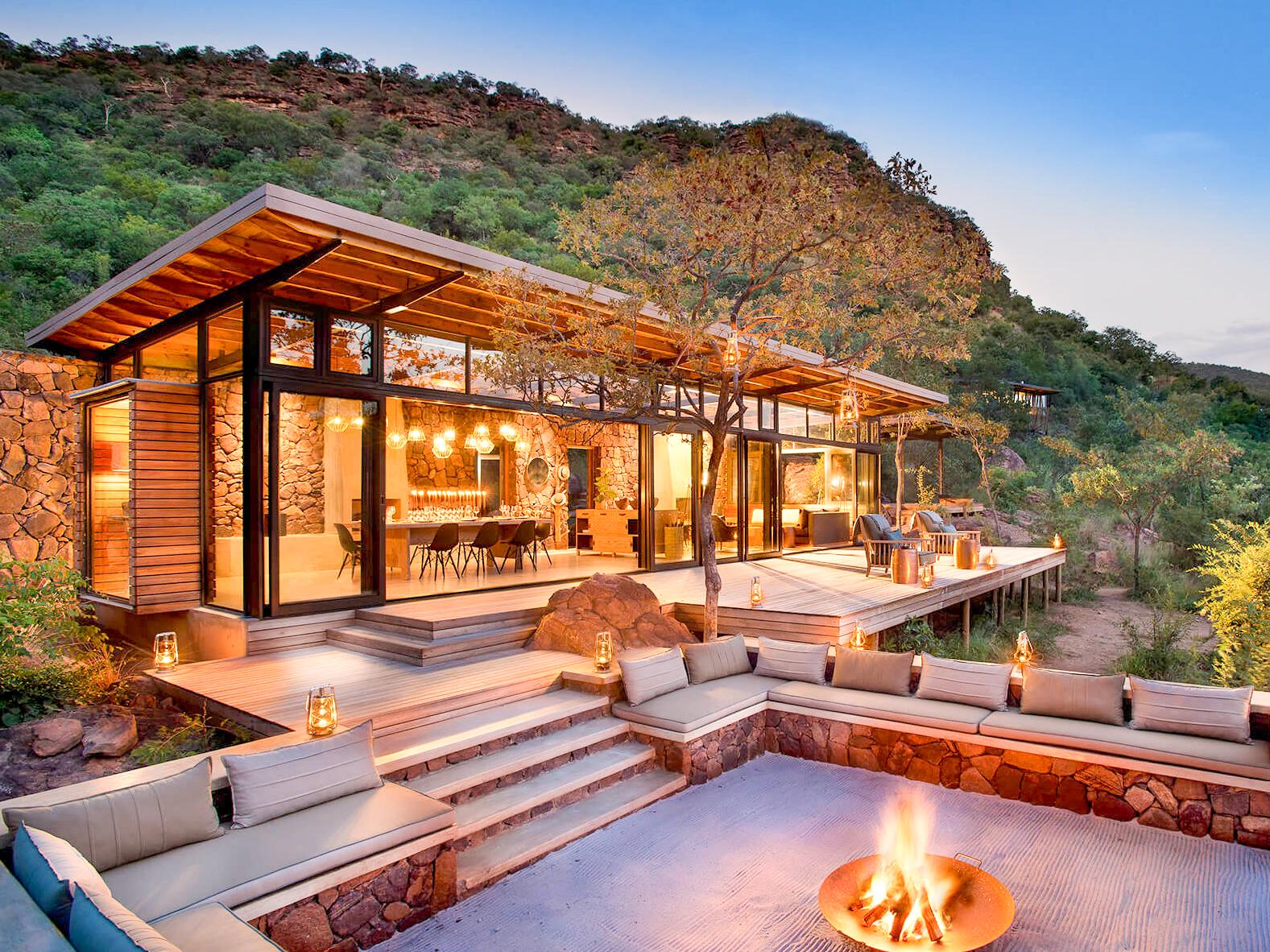
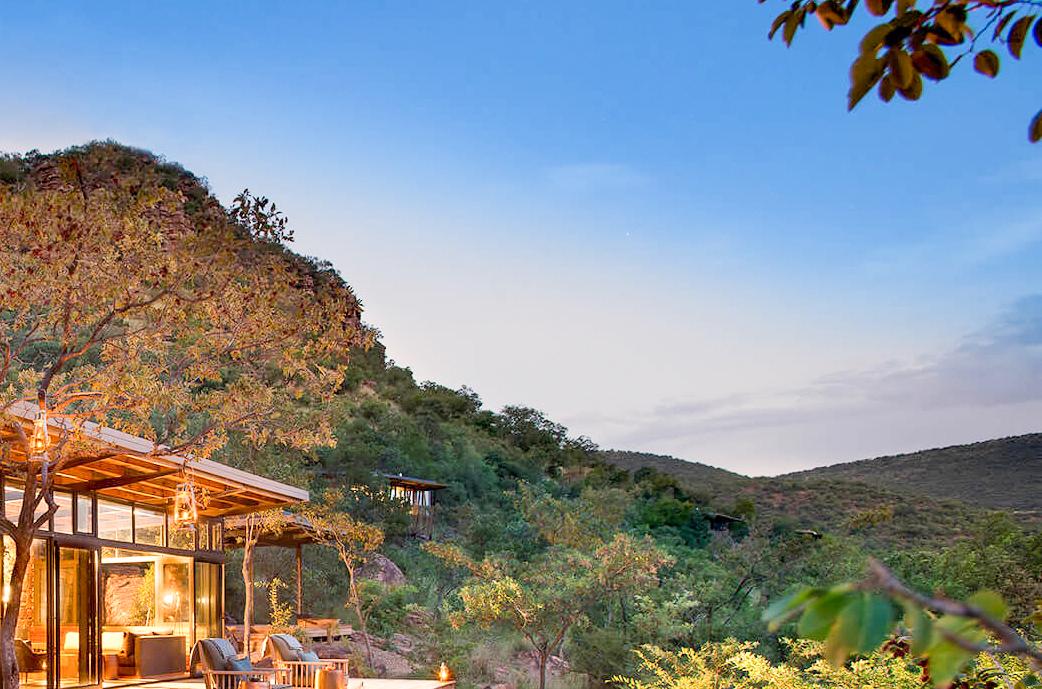

global accolades and the loyalty of guests willing to pay premium prices for responsible luxury.
Four Seasons Safari Lodge Serengeti has invested in advanced water recycling and solar energy systems. By drawing local labor and supporting anti-poaching work within the Serengeti ecosystem, the lodge not only controls costs but also bolsters its positioning as a market leader in sustainable hospitality.
Jabali Ridge, highlighted by tour operator Kuoni, achieves eco-certification with sustainable building design and solar energy, enabling the camp to tap into the booming market for high-end eco-tourism, which delivers both environmental and financial rewards.
Other Tanzanian properties like Chem Chem Lodge underscore the trend of environmentally sensitive design coupled with direct community engagement, further enabling sustainable, profitable growth.
South African safari lodges have blazed trails in eco-innovation, balancing conservation with sophisticated hospitality, and reaping measurable business benefits.

Londolozi Private Granite Suites in the Sabi Sands reserve exemplifies this approach. Escape Safari Co’s 2021 article “Six Sustainable Safari Lodges in Africa” documents Londolozi’s status as Africa’s first carbon-neutral game reserve, with solar power supplying most energy needs and organic gardens
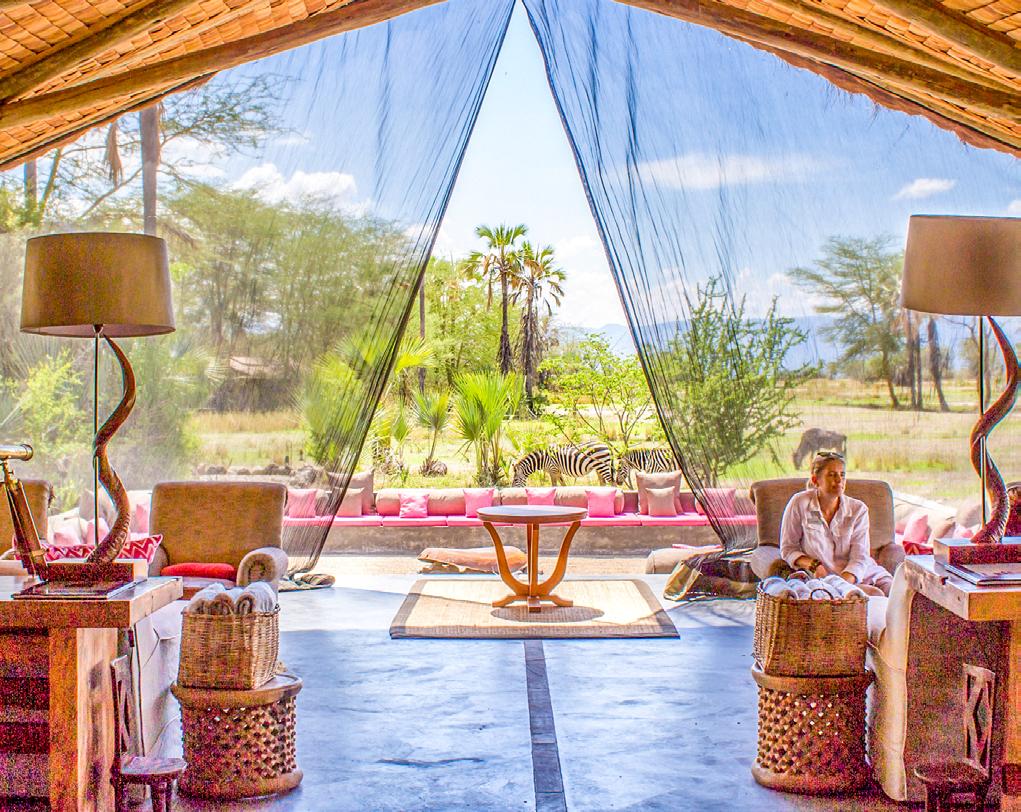
supplying fresh produce. These innovations contributed to a reduction of up to 50% in energy-related operating costs, according to the same source, while the lodge’s conservation achievements have enhanced its global brand and guest loyalty.

Lion Sands Ivory Lodge’s environmentally conscious design and renewable energy usage have reduced its utility outlay significantly. Escape Safari Co further reports that their robust water management and community employment programs deepen local partnerships that stabilize lodge operations and control costs.

Singita Boulders Lodge continues Singita’s legacy, integrating organic building materials with comprehensive solar power usage and investing heavily in conservation projects. Escape Safari Co observes that such long-term investments reduce regulatory risks, attract affluent guests, and contribute to steady profit margins due to the lodge’s strong market differentiation.
Marataba Conservation Camps has strategically linked conservation-focused land management with luxury lodging, reinforcing the notion that sustainability can be a powerful business advantage.
When exploring the concrete financial benefits sustainability brings to safari lodges in Sub-Saharan Africa, the evidence is compelling. Energy costs represent one of the largest operational expenses for remote lodges relying on diesel generators. According to a 2025 tourism industry analysis, annual fuel and maintenance costs for diesel generators can easily reach US$50,000.
However, lodges that have embraced solar energy solutions dramatically reduce this expense. Those using hybrid solardiesel systems report cutting energy costs by up to 50%, bringing their annual bills down to around US$25,000. Lodges

that have fully transitioned to 100% solar power reduce energy-related expenses even further, by up to 90%, spending approximately US$5,000 per year mainly on maintenance and ancillary power needs.
These significant savings free up funds that can be reinvested into guest services, conservation projects, or marketing efforts, making renewables not just eco-friendly but financially smart investments.
Beyond energy, sustainable waste management and watersaving technologies also offer cost efficiencies. Proper waste segregation and recycling reduce disposal fees, while water conservation strategies such as rainwater harvesting and greywater reuse lower water bills and extend the viability of scarce resources, especially vital in arid safari regions.
On the revenue side, sustainability is a proven differentiator in an increasingly eco-conscious global travel market. The 2025 Global Travel Industry Report reveals that over 60% of international safari tourists now prefer accommodations with authenticated sustainability credentials. Moreover, many guests are willing to pay a premium of 10 to 15 percent for lodges that demonstrate real environmental and social responsibility. This willingness translates into higher average daily rates, increased occupancy levels, and enhanced brand loyalty.
Social sustainability further strengthens the business case. Engaging local communities through employment and revenue-sharing reduces staff turnover and workplace conflicts, leading to a more consistent guest experience and lower recruitment costs. According to annual impact reports from several leading safari properties, these community partnerships also promote regional stability and security, critical factors for uninterrupted operations.
In summary, sustainability initiatives in energy, water, waste, and community engagement act as levers to reduce operating expenses, increase revenues, and mitigate risks. Those lodges that prioritize holistic sustainability not only contribute positively to conservation and local development but also significantly improve their financial performance and resilience in a competitive tourism market.





















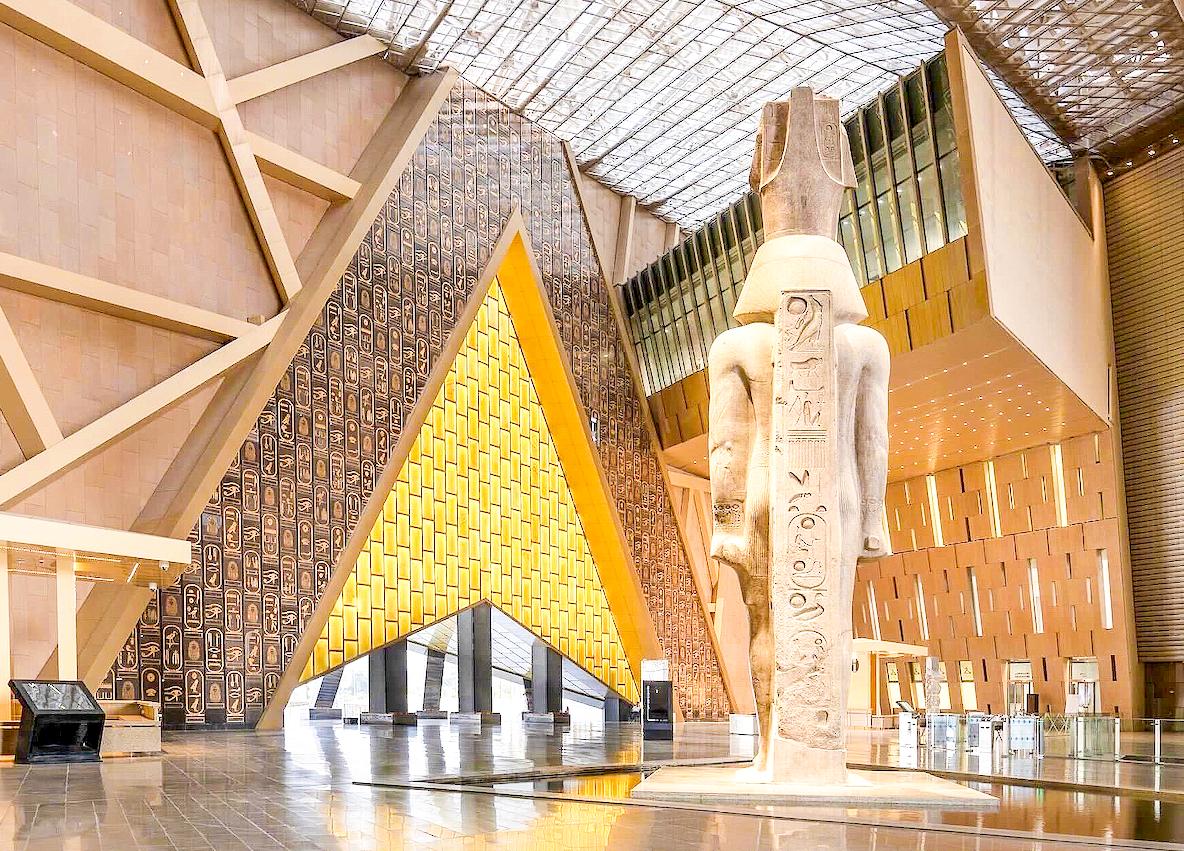


BY VICTOR ATSALI
Egypt is riding a thrilling wave of tourism resurgence. In 2024, the country welcomed a record 15.7 million visitors, surpassing the previous year’s 14.9 million arrivals, thanks to enhanced security, upgraded infrastructure, and targeted promotional campaigns aimed at key markets like Germany, Russia, and Saudi Arabia, according to the Ministry of Tourism and Antiquities. This isn’t just a rebound from the pandemic, it’s a powerful statement about Egypt’s enduring appeal and forward-thinking vision.
From the timeless majesty of the Pyramids and the Grand Egyptian Museum to the sweeping dunes of the desert and the vibrant energy of cities along the Nile, Egypt offers experiences that stir the soul. It’s a land where history and hospitality are woven into every interaction, and where infrastructure and attractions are being refreshed for modern explorers.
This revival reflects more than simple tourism growth, it embodies a deep commitment to sustainable development and cultural enrichment. With a national strategy targeting 30 million tourists by 2028, backed by ambitious infrastructure projects and improved visitor services, Egypt is shaping itself into one of the world’s most compelling destinations for the decades ahead.
Tourism’s contribution to the national economy is immense, accounting for an estimated 24% of Egypt’s GDP in 2023. The sector’s revenue reached US$31.1 billion in the first quarter of the 2024/2025 fiscal year, with annual projections climbing as high as US$50 billion by 2029. These figures are not just



milestones; they’re fuel for a new era of investment, job creation, and cultural exchange.
Egypt’s appeal is as diverse as its landscapes. The Pyramids of Giza and the enigmatic Sphinx remain bucketlist icons, drawing millions of visitors eager to experience the magic of ancient Egypt. Yet, there’s so much more to discover. The soon-to-open Grand Egyptian Museum is set to become the world’s largest archaeological museum, housing treasures that span millennia and offering immersive experiences for all ages.
Beyond the monuments, Egypt’s natural beauty is equally captivating.
The White Desert’s surreal chalk formations, the lush oases of Siwa, and the vibrant coral reefs of the Red Sea are drawing adventure seekers, eco-tourists, and wellness travelers alike. Sharm El-Sheikh and Hurghada, with hotel occupancy rates exceeding 75% in 2024, are now hubs for luxury,

relaxation, and world-class diving.
The Nile River remains the lifeblood of Egypt’s tourism, with cruises offering travelers a unique way to explore the country’s heartland. From the bustling streets of Cairo to the tranquil banks near Luxor and Aswan, these cruises blend comfort with cultural discovery, allowing visitors to soak in the history and hospitality that define Egypt.
What truly sets Egypt apart is its ability to offer something for everyone, all year round. While history buffs marvel at Luxor’s Valley of the Kings and the temples of Abu Simbel, families enjoy Nile cruises, and thrill-seekers embark on desert safaris or kite-surfing adventures along the Red Sea coast.

























The country is also investing in new tourism segments, such as adventure travel and MICE (Meetings, Incentives, Conferences, and Exhibitions) tourism, broadening its appeal to business travelers and event organizers.
Egypt’s climate, with mild winters and warm summers, allows for a variety of activities throughout the year. To address the traditional seasonal dips in tourism, regional festivals and cultural events have been expanded, encouraging visitors to experience Egypt’s rich heritage beyond the peak months. Events like the Abu Simbel Sun Festival and Cairo International Film Festival are drawing international attention and encouraging off-peak travel.
Egypt’s hospitality sector is booming. The country added over 4,000 new hotel rooms in early 2024, bringing the total to more than 220,000, with further expansions on the horizon. Major international hotel brands are increasing their presence, and new investments are flowing in, supported by government incentives and financing initiatives designed to stimulate growth and innovation.

available room (RevPAR), reflecting a shift in traveler preferences toward budget-friendly accommodations and short-term rentals. This trend highlights Egypt’s adaptability, as the sector diversifies its offerings to cater to a broader range of visitors, from luxury seekers to digital nomads.
The rise of alternative accommodations, including Airbnb and boutique hotels, is reshaping the hospitality landscape. These options appeal to younger travelers and those seeking more personalized experiences, contributing to a more vibrant and varied tourism ecosystem.

Marketing campaigns like “Living 365” are showcasing Egypt’s year-round appeal, while targeted promotions in Gulf countries, Europe, and North America are diversifying the country’s tourist base. The government’s focus on safety and security, with dedicated tourism police and robust protocols, has also helped restore traveler confidence, even amid regional geopolitical EGYPT'S GOAL IS REACH 30 MILLION ANNUAL TOURISTS BY 2030, SUPPORTED BY ROBUST INFRASTRUCTURE
Yet, the picture is nuanced. While tourist arrivals are soaring, some traditional hotel metrics in Cairo, for example, have seen slight declines in occupancy and revenue per
Egypt’s tourism renaissance isn’t happening by chance. The government is actively investing in infrastructure, from modernizing airports and roads to launching the US$1 billion Grand Egyptian Museum. Major cities are seeing upgrades in public transport and digital services, making travel smoother and more enjoyable.


tensions.
Additionally, Egypt is investing in digital transformation to enhance the visitor experience. Mobile apps for tourism information, online ticketing systems for attractions, and virtual reality tours are becoming increasingly common, helping travelers plan and enjoy their trips with ease.
No journey is without its bumps, and Egypt’s tourism sector faces its share of challenges. Regional instability and global uncertainties can impact travel sentiment, but Egypt’s resilience is evident in its continued growth and positive outlook. Seasonal fluctuations, with peaks in the winter months, are being addressed by promoting off-peak festivals and attractions, encouraging visitors to explore the country’s wonders year-round.
The shift toward more budgetconscious travel is prompting innovation in accommodation and experiences, ensuring that Egypt remains accessible and attractive to all. The government’s support for hotel investment and the expansion of alternative lodging options are helping to meet evolving traveler expectations.
Preserving Egypt’s fragile archaeological sites amid rising visitor numbers is another critical challenge. The government, in partnership with UNESCO and other international bodies, is implementing measures such as visitor caps, improved site management, and the use of technology to monitor and protect these irreplaceable treasures.
Sustainability is moving from buzzword to reality in Egypt’s tourism strategy. Protected areas like the White Desert National Park are limiting visitor numbers to preserve their unique ecosystems, while eco-certified hotels and community-based tourism projects are spreading benefits to local populations. Solar-powered Nile boats, plastic-free initiatives in Red Sea
resorts, and smart lighting in Luxor’s temples are just a few examples of how Egypt is embracing responsible tourism.
The Ministry of Tourism is also working to raise awareness about environmental protection and cultural preservation, integrating these values into all levels of planning and development. These efforts are not only safeguarding Egypt’s treasures for future generations but also appealing to a new wave of conscious travelers.
Community engagement is a cornerstone of Egypt’s sustainable tourism approach. In areas like Siwa Oasis and Nubian villages near Aswan, local communities are actively involved in tourism activities, offering authentic cultural experiences while benefiting economically. This model fosters respect for local traditions and encourages visitors to travel responsibly.
With a projected 6% growth in international arrivals for 2025, Egypt expects to welcome 16.8 million visitors this year, with the potential for even higher numbers as the year progresses.
The government’s ambitious goal of reaching 30 million annual tourists
by 2030 is supported by robust infrastructure, innovative marketing, and a commitment to quality and sustainability.
Investment in technology and infrastructure will continue to be a priority. Plans for high-speed rail connections between Cairo and key tourist hubs like Luxor and Aswan promise to make travel faster and more comfortable. Smart city initiatives in Cairo and Alexandria aim to improve urban tourism experiences, blending modern conveniences with rich cultural offerings.
Egypt is writing a new chapter in its storied history, blending ancient wonders with modern adventures and a warm, welcoming spirit. Whether you’re drawn by the mysteries of the pharaohs, the call of the Red Sea, or the pulse of Cairo’s nightlife, there’s never been a better time to explore-and fall in love with-this remarkable country.
As Egypt’s tourism sector continues to evolve, the country’s unique blend of heritage, innovation, and hospitality promises unforgettable journeys for travelers of all kinds. The land of the pharaohs isn’t just a destination; it’s an experience waiting to be lived, shared, and cherished. HRMEA




INDIA – Food delivery giant Swiggy has rolled out DeskEats, a workplace-focused dining service designed to meet the varied meal needs of corporate professionals.
Now active in over 7,000 tech parks, corporate offices, and business hubs across 30 cities, including Delhi, Mumbai, Bengaluru, Chennai, and Kolkata, DeskEats offers curated meal options tailored to different moments in the workday.
For full lunches, the platform features value combos balancing affordability and nutrition. Those seeking lighter fare can choose from stress munchies, flavor-packed snacks for mid-afternoon boosts, or healthy nibbles for wholesome, nutrient-rich options.
The teamwork bites range offers shareable items ideal for meetings or group breaks, while one-handed grabbies cater to busy professionals who need mess-free snacks during calls or focused work sessions.
The categorization reflects Swiggy’s understanding of modern office life, where multitasking and convenience are essential.
By addressing everything from quick bites to team meals, DeskEats aims to enhance productivity without sacrificing taste or quality.
The launch also marks a strategic push into the B2B food delivery segment, enabling Swiggy to integrate directly into corporate environments.
The service aligns with employers’ catering and wellness programs, offering flexible ordering, timely deliveries, and menus from popular local restaurants and cafés.
For employees, DeskEats eliminates the need to leave the office for meals, ensuring fast, satisfying options that fit seamlessly into work schedules. For businesses, it offers a

TurnStay secures US$2M to transform cross-border travel payments in Africa
South African fintech startup TurnStay has raised over ZAR 34 million (US$2 million) in a pre-seed round to scale its cross-border payment platform for the travel and tourism sector.
The round was led by First Circle Capital, with participation from TLCom Capital, Enza Capital, Incisive Ventures, and Evergreen.
The funding will accelerate TurnStay’s expansion into multiple African markets, tackling persistent challenges in cross-border travel transactions.
African travel operators often face high card fees, repeated payment failures, and slow settlements.
TurnStay’s platform addresses these pain points through a merchant-of-record model paired with stablecoin-based payouts.
This enables travelers to pay in their home currencies while merchants receive local settlements quickly and at lower cost.
According to the company, the solution can cut transaction fees by up to 70%, improve cash flow, and boost booking conversion rates.

It also integrates seamlessly with booking engines and property management systems, ensuring adoption without disrupting existing operations.
Since launching, TurnStay has processed more than ZAR 250 million (US$14 million) in transactions and forged partnerships with key travel industry players.
The platform also helps operators secure more direct bookings, reducing reliance on expensive international agent commissions.
Co-founder and COO James Hedley noted the dual benefit of reduced costs for merchants and improved booking experiences for travelers.
Africa’s travel and tourism sector contributes over ZAR 1.8 trillion (US$105 billion) annually and supports more than six million jobs.
With TurnStay’s technology, local operators could gain a stronger foothold in the growing global travel market.
– Software and payment technology provider SpotOn has unveiled SpotOn Profit Assist, an AI-driven tool designed to help restaurant operators automate and streamline profit and loss (P&L) analysis.
The launch comes amid rising inflation, higher food costs, and shifting consumer spending patterns that are squeezing margins, particularly for independent restaurants with limited resources.
Unlike generic accounting platforms, Profit Assist is tailored specifically to the fast-paced, margin-sensitive foodservice industry.
It integrates seamlessly with popular accounting systems such as QuickBooks Online, Xero, and Restaurant 365, enabling operators to use their existing financial data without workflow disruption.
Powered by advanced AI, Profit Assist automates the timeconsuming process of reconciling sales, inventory, labor, and expenses, providing real-time visibility into a restaurant’s financial health.
The platform’s dashboard highlights key performance metrics, detects anomalies, and identifies cost overruns before they erode profitability.
Beyond reporting, Profit Assist delivers actionable recommendations, such as adjusting menu prices, refining staffing schedules, or renegotiating supplier contracts, that can directly boost margins.
The AI engine learns from each restaurant’s unique operations, refining its guidance over time for increasingly targeted insights.
SpotOn says the tool is designed to level the playing field, giving smaller operators access to sophisticated financial management capabilities once reserved for large chains with dedicated finance teams.
As competition and economic headwinds persist, AIpowered tools like Profit Assist could become indispensable for restaurants determined to adapt and grow in a challenging market environment.


Hotpack
to invest US$100M in first North American facility
USA – UAE-based packaging manufacturer Hotpack has announced a US$100 million investment to establish its first manufacturing and distribution facility in North America, selecting Edison, New Jersey, as the site.
The announcement was made jointly by New Jersey Governor Phil Murphy, during an economic mission to the Gulf Arab States, and Hotpack’s leadership.
The new facility will serve as a strategic hub for delivering customized, sustainable packaging solutions to the U.S. hospitality sector, while strengthening the company’s global supply chain.
Specializing in plastic and paper-based cups, containers, and clamshells, the Edison plant will boost Hotpack’s ability to serve U.S. customers with greater efficiency and flexibility.
Outfitted with advanced packaging technology, it will focus on high-quality, bespoke products designed to enhance brand visibility and functionality.
Governor Murphy hailed the move as a testament to New Jersey’s strategic location, skilled workforce, and robust infrastructure.
“Hotpack’s decision to expand here underscores our state’s position as a premier destination for global investment,” he said.
Hotpack Group CEO & Managing Director Abdul Jebbar PB described the expansion as a transformative step, citing both enhanced service for U.S. clients and local job creation.
Group COO & Executive Director Zainudeen PB added that the facility would act as a centre of excellence for customized packaging, while Group CTO & Executive Director Anvar PB stressed its role in reducing the environmental impact of longdistance shipping.
The project follows Hotpack’s recent global investments in Malaysia, Saudi Arabia, and India. Founded in 1995, the company now operates in 17 countries, with 20 manufacturing facilities, 29 branches, and a workforce exceeding 4,200.
Wesley Mathews, CEO of Choose New Jersey, called the investment a strong signal of the state’s competitiveness in advanced manufacturing.
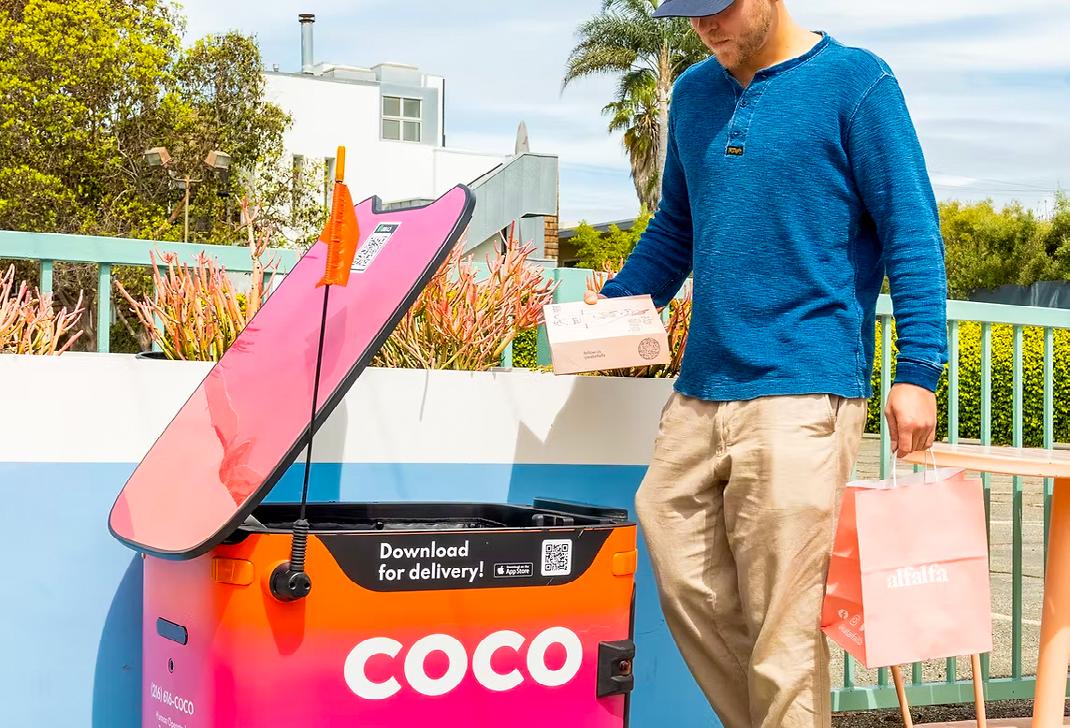
USA – Los Angeles-based Coco Robotics has raised US$80 million to accelerate the expansion of its autonomous delivery fleet, strengthen enterprise partnerships, and advance its artificial intelligence platform.
The round attracted returning investors Sam and Max Altman, Pelion Venture Partners, Outlander, and SNR, alongside new backers including Offline Ventures, DeepWater, and Ryan Graves, CEO of Saltwater and former Uber senior vice president.
This latest investment brings Coco’s total funding to over US$120 million.
Founded in 2020, Coco Robotics has completed more than 500,000 zero-emission deliveries in cities including Los Angeles, Chicago, Miami, and Helsinki.
The company works with major delivery platforms such as DoorDash and Uber Eats to provide efficient, eco-friendly lastmile solutions.
DoorDash began collaborating with Coco in April to serve 600 merchants across Los Angeles and Chicago, with a pilot aiming for over 100,000 deliveries in Los Angeles alone.
Uber Eats partnered with Coco in Los Angeles in 2024 before expanding to Miami in early 2025.
Coco’s electric delivery robots, about the size of coolers, are built for small orders and short trips that are less cost-effective for human drivers.
With a carrying capacity of up to 90 liters, they reduce emissions and alleviate traffic congestion in dense urban areas.
Its AI platform, developed in partnership with OpenAI, enables robots to navigate obstacles and make real-time decisions during deliveries.
The company aims to deploy 10,000 autonomous delivery vehicles globally by 2026, positioning itself as the world’s largest autonomous delivery provider.
The new funding will accelerate fleet growth, AI advancements, and international expansion, reinforcing Coco’s role at the forefront of sustainable urban logistics.
GLOBAL – DoorDash has agreed to acquire hospitality technology leader SevenRooms in an all-cash deal worth US$1.2 billion, a move set to significantly strengthen its Commerce Platform with advanced reservation, marketing, and guest management capabilities for restaurants and hotels worldwide.
Announced in May, the acquisition marks DoorDash’s largest push into hospitality tech and is expected to close in the second half of 2025, subject to regulatory approval.
Founded in 2011 and headquartered in New York, SevenRooms operates a leading customer relationship management (CRM) platform used by over 13,000 venues globally, including Marriott International, MGM Resorts, and Wolfgang Puck.
Its software suite covers reservations, waitlist and table management, revenue optimization, marketing automation, and review aggregation, tools designed to deepen guest engagement and drive profitability.
For DoorDash, the deal builds on its Commerce Platform, launched in 2024, which helps merchants connect with customers across online, phone, and in-person channels while retaining direct relationships.
By integrating SevenRooms’ in-store capabilities, DoorDash aims to give local businesses worldwide access to advanced CRM tools, smarter marketing insights, and stronger customer loyalty.
The transaction is DoorDash’s first software company purchase since 2022 and follows its recently announced US$3.9 billion acquisition of UK-based food delivery platform Deliveroo.
Together, the deals expand DoorDash’s reach beyond delivery into broader hospitality and local commerce.
In Q1 2025, DoorDash posted revenue of US$3.03 billion, up 21% year-on-year but slightly below analyst forecasts, processing 732 million orders, an 18% increase.






Start-ups and young businesses in sub-Saharan Africa face a myriad of challenges, including lack of access to technology, expertise and networks to grow.
Sales/Marketing Purchasing/Supply
QA/R&D
Others (specify)
At The Nest Africa, we are creating a collaborative facility with new product development labs, production and packaging kitchens and office space for use by start-ups and young companies to facilitate their innovations and growth towards becoming the next big thing. AND WE BELIEVE THAT CONNECTING THEM TO BIG CORPORATES AND FUNDERS IS



